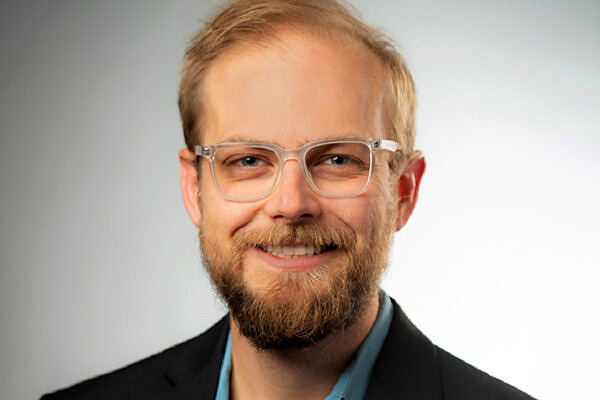
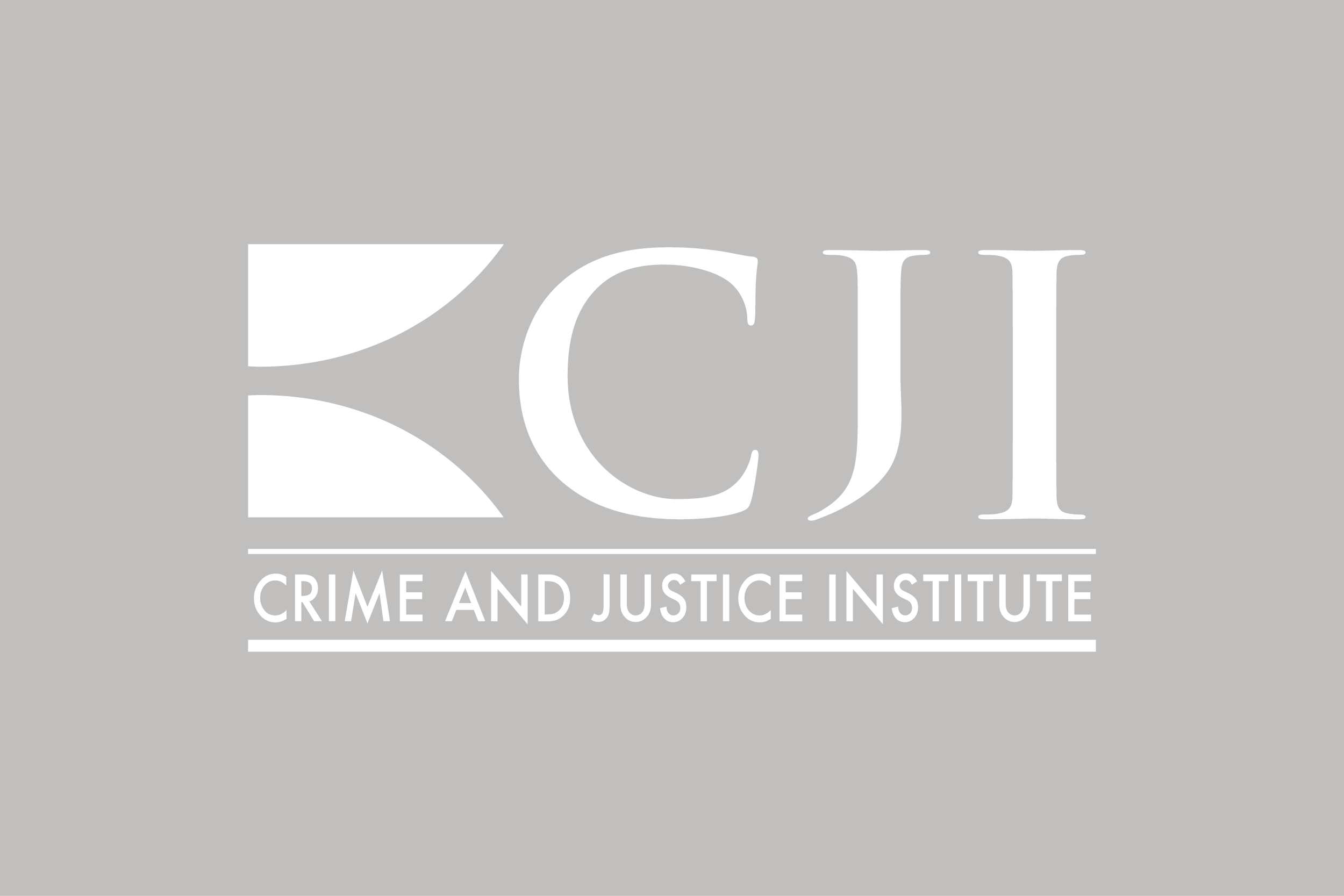
Kate Bryan began her career as a registered nurse specializing in level I trauma, intensive care, and behavioral health. She has since focused on criminal and civil justice policy, working with lawmakers and stakeholders across the nation. At CJI, Kate provides support to Justice Reinvestment Initiative projects focused on adult and youth justice systems. She is committed to applying evidence-based, data-driven research to inform equitable and actionable policies that enhance public safety, reduce disparities in the justice system, and improve outcomes for system-impacted individuals. Kate holds a Bachelor of Science in Nursing from the University of Colorado and a Master of Science in Law from Northwestern Pritzker School of Law.
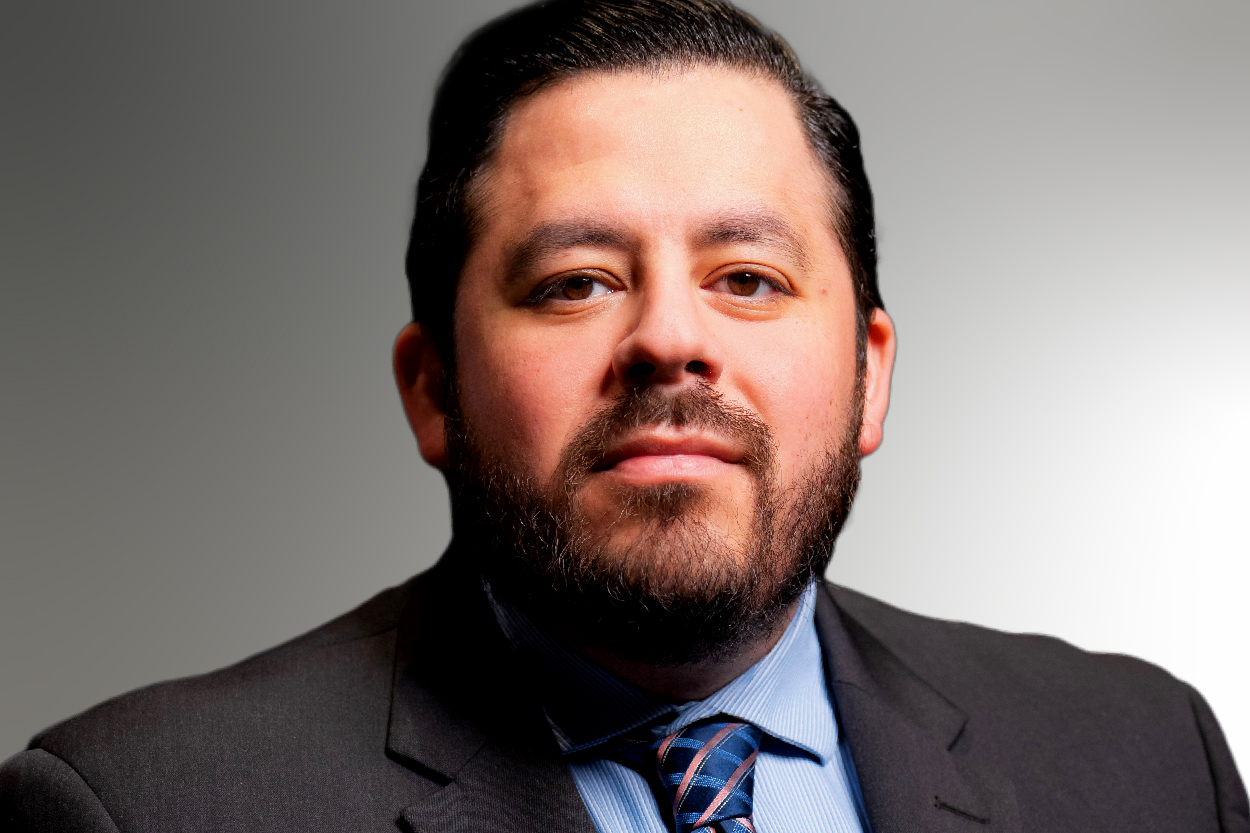
Robert Flores has over 10 years of experience in the youth justice system, with expertise in community supervision, family engagement, community-based and residential mental health programs, and direct service in secure facilities. Robert provides support to local and state jurisdictions on policy development, implementation support, and sustainability. He is passionate about supporting at-risk youth by strengthening their families and communities through trauma-informed care and restorative justice practices. He holds a Bachelor of Arts in Criminal Justice and a Master of Science in Criminal Justice Administration from Loyola University New Orleans.

Nyhrie Chapman specializes in criminal justice policy analysis and has more than four years of experience in research, policy development, and constituent engagement. She has supported the development of comprehensive policy reports, conducted literature reviews, and facilitated communication with policymakers, community stakeholders, and federal agencies. She has worked on high-impact projects, including managing constituent correspondence on federal issues and leading statewide advocacy campaigns. She is driven by a passion for creating equitable and effective policies within the criminal justice system. Nyhrie holds a Bachelor of Arts in Political Science from Shaw University, a Master of Science in Criminal Justice from North Carolina Central University, a Master of Philosophy in Criminal Justice from Walden University, and holds a PhD of Philosophy in Criminal Justice with a concentration on emergency management at Walden University.

Michelle Io-Low joined CJI in September 2024, focusing on data-driven approaches to generate actionable and evidence-based insights. As a member of CJI’s pretrial team, Michelle applies quantitative methods to evaluate pretrial systems, aiming to improve their efficiency, outcomes, and equitability. Prior to joining CJI, Michelle conducted research on public opinion and civic engagement. They are committed to developing strong foundations for evidence-based decision making as it leads to more equitable practices. Michelle holds a PhD in Political Science from Stony Brook University.

Lois Fegan has over 22 years of progressively responsible experience working in the adult corrections system, including non-profits, local, and state government systems. She spent 17 years working in the Virginia Department of Corrections in a variety of research, operational, and management roles including restrictive housing, case management, operations management.
Lois worked as a part-time consultant with the Crime and Justice Institute for a year before joining the agency full-time in the fall of 2024 as a Senior Policy Specialist. Her experience includes curriculum development, revision and training on national restrictive housing topics in conjunction with the National Institute of Corrections. She currently conducts research, policy analysis, project management, and technical assistance on a range of restrictive housing topics for a variety of national audiences.
Lois holds a Bachelor of Arts degree in Sociology and Criminal Justice from Lebanon Valley, and a Master of Science in Criminal Justice and Corrections from the University of Baltimore. She is also a certified Project Management Professional. Her credentials also include advanced leadership courses through the Virginia Performance Management Institute and a long-standing membership of the American Correctional Association.
Charles Robinson is the Deputy Chief of the Probation & Pretrial Services Office of the Administrative Office of the United States Courts. Over the course of more than 20 years, he has worked in both county and federal probation, including supervising a caseload of community supervision clients, training officers and developing systems to support successful implementation of risk instruments, and serving as a chief probation officer. Charles has co-authored several widely used client and officer training programs for community and custodial correctional settings. Among these programs are Decision Points, an open-group cognitive-behavioral program that teaches clients to observe and interrupt thinking that leads to trouble; and Effective Practices in Correctional Settings (EPICS) II, a training program for criminal justice professionals based on behavioral change strategies found to be effective with criminal justice clients. He has extensive experience as a consultant training agency leaders and staff in juvenile and adult correctional settings. He has helped leaders and agencies in the U.S. and other countries better align their community supervision systems with practices proven to exert a positive effect on clients and their communities. Charles has also co-authored several articles that contribute to the research literature supporting effective practices in community supervision.

Joy Holliday has more than 15 years of experience in the criminal justice field with her most recent experience serving as Chief of Staff of a midwestern city where she led the City’s Office of Violence Prevention and coordinated the National Initiative for Building Community Trust and Justice – a collaboration with the Yale Law School’s Justice Collaboratory, the Center for Policing Equity, and the Urban Institute. At CJI, Joy manages the Justice Reinvestment Initiative Phase I projects. She has extensive experience in project management and working on complex criminal justice campaigns with stakeholders. Joy holds a Bachelor degree in Criminal Justice and a certificate in Public Management from Indiana University.
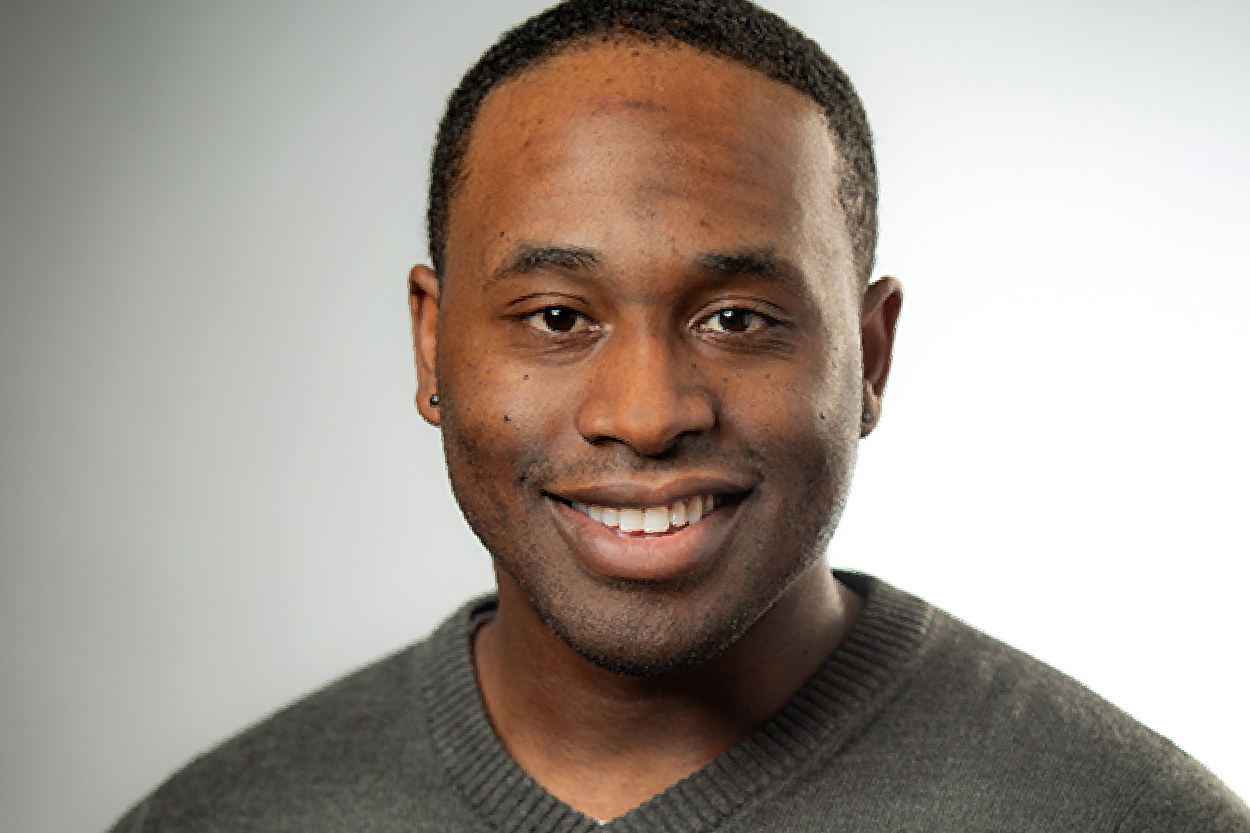
Kavontae Smalls has more than 14 years of experience working in various forms of media. He serves as a communications specialist within the CJI Communications team. He has communications experience in the nonprofit and government sectors. Kavontae brings his strategic communications experience to CJI focusing primarily on the Justice Resource Institute (JRI), expanding CJI’s digital presences and media relations efforts. Kavontae previously served as a spokesperson for a law enforcement agency and a sitting Congressmember. He also brings with him Emmy-award winning journalistic expertise. Kavontae is committed to helping fill existing gaps within the justice system at all levels to create a more just and fair process for all. He holds a BA in journalism and communications from The University of West Florida.

When Julia Shepard joined CJI, she brought with her legal experience supporting immigration and criminal defense attorneys. At CJI, she primarily contributes to Justice Reinvestment Initiative (JRI) Phase II work on the implementation and assessment team. She is committed to building a more just public safety system that minimizes dependence on incarceration, repairs harm, prioritizes rehabilitation, and improves outcomes for justice-involved individuals through evidence-based practices. Julia holds a Bachelor of Arts degree in Sociology from Colorado College.
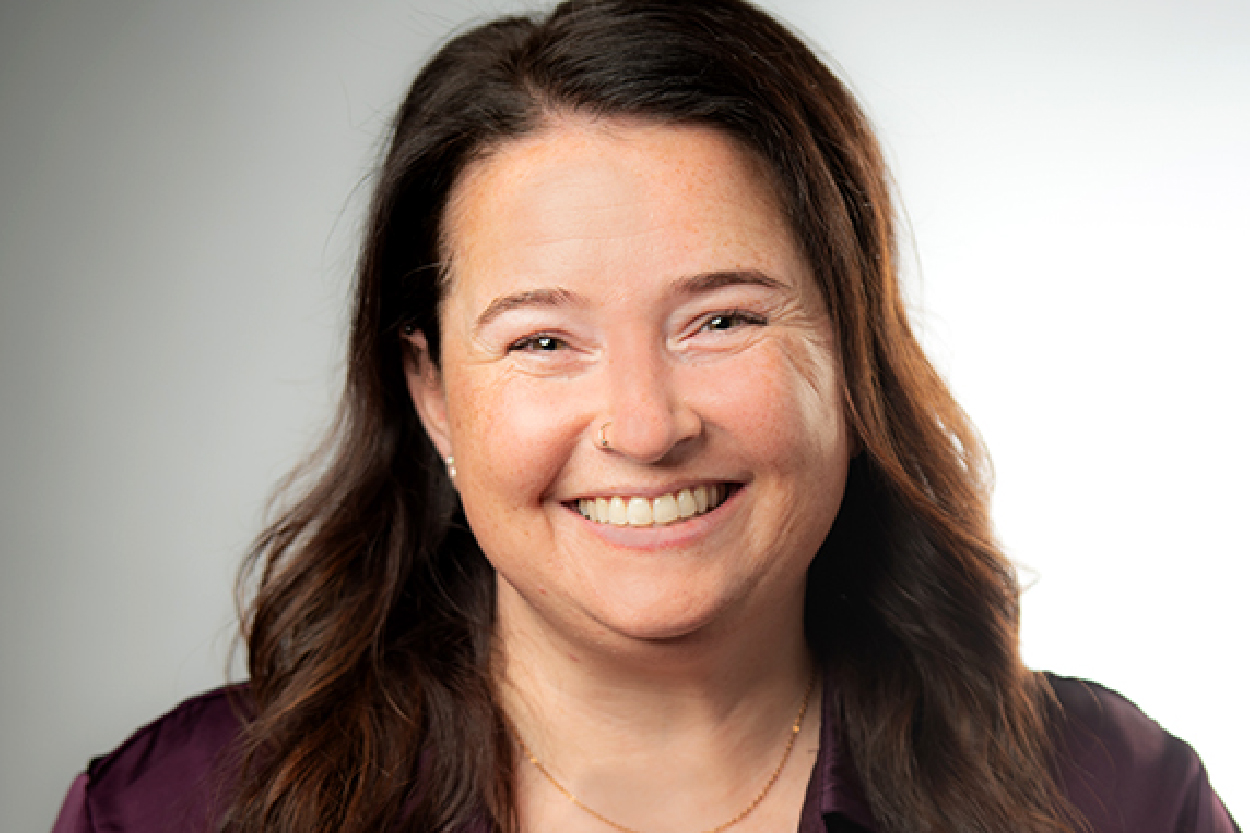
Jessica Patterson has over 15 years of behavioral health and criminal justice experience, working in County mental health center and jail settings. At CJI, Jessica supports jurisdictions across the country in developing improved practices through the Justice Reinvestment Initiative (JRI). She brings experience with competency enhancement, jail-based behavioral health treatment, program implementation, and leadership skills. Jessica is committed to advancing the treatment and support for individuals involved in the criminal justice system through effective policy and program implementation. She graduated with a Bachelor of Psychology from Fort Hays State University, received her Master of Social Work from the University of Kansas, and is a Licensed Clinical Social Worker in the State of Colorado.
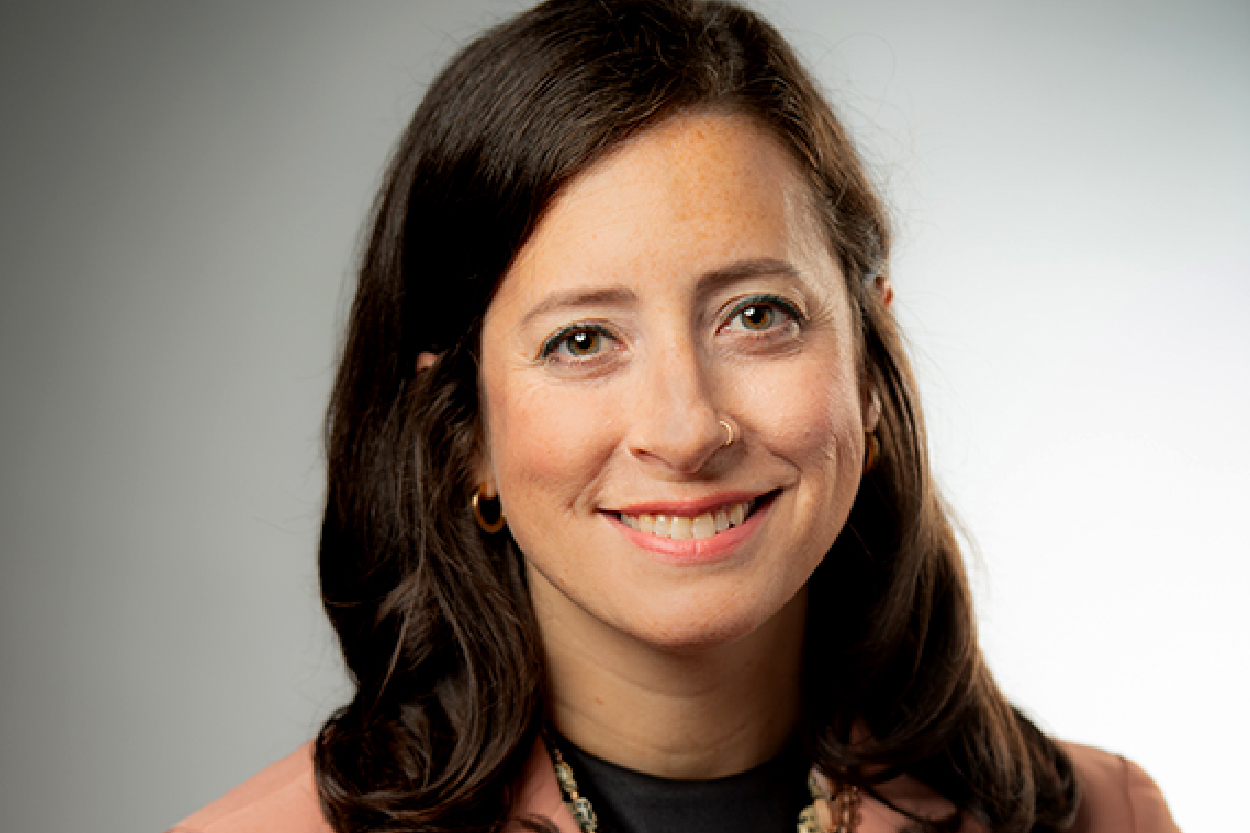
Julia Solomons has worked in the criminal justice field for the past 10 years, working both directly with justice-impacted individuals as a service provider, as well as advocating for criminal justice policy change at the local and state levels. Julia primarily supports assessment and implementation efforts for the Justice Reinvestment Initiative (JRI), utilizing her expertise to guide state leaders in effective implementation of criminal justice policy reforms. She is a licensed social worker with a background in organizing, dedicated to the fight for social equity and racial justice. Julia holds a bachelor degree in psychology from Tulane University, and a Master of Social Work degree from Hunter College. She is also fluent in Spanish.

Kimberly J. Martin joined CJI’s policy team in June 2024. She has extensive experience in youth justice and child welfare systems and is dedicated to impacting youth and families, ultimately influencing the future for generations to come. Kimberly’s background includes serving as a student-attorney, interning with judicial institutions, and working with various organizations focused on youth at risk, children’s law and policy, and youth aging out of foster care. These experiences have provided her with firsthand knowledge and expertise in addressing and resolving the legal needs of disadvantaged children, youth, and young adults from diverse backgrounds. With aspirations of becoming a judge within the family court system, Kimberly has established herself as an authentic voice and a powerful advocate. Her prior experience in corporate America has recognized her as a highly valued team player and trendsetter at all levels. Kimberly is a well-grounded, highly self-motivated individual who takes pride in mastering concepts to pass them on. As a first-generation lawyer, she believes in holding doors open for those coming behind her. Her love for advocacy and justice is an integral part of her purpose, driving her to create pathways, provide resources, and become a solution for youth. Kimberly holds a Juris Doctorate from Howard University School of Law and a Bachelor of Art in Politics, Economics, and Law from the State University of New York College at Old Westbury.
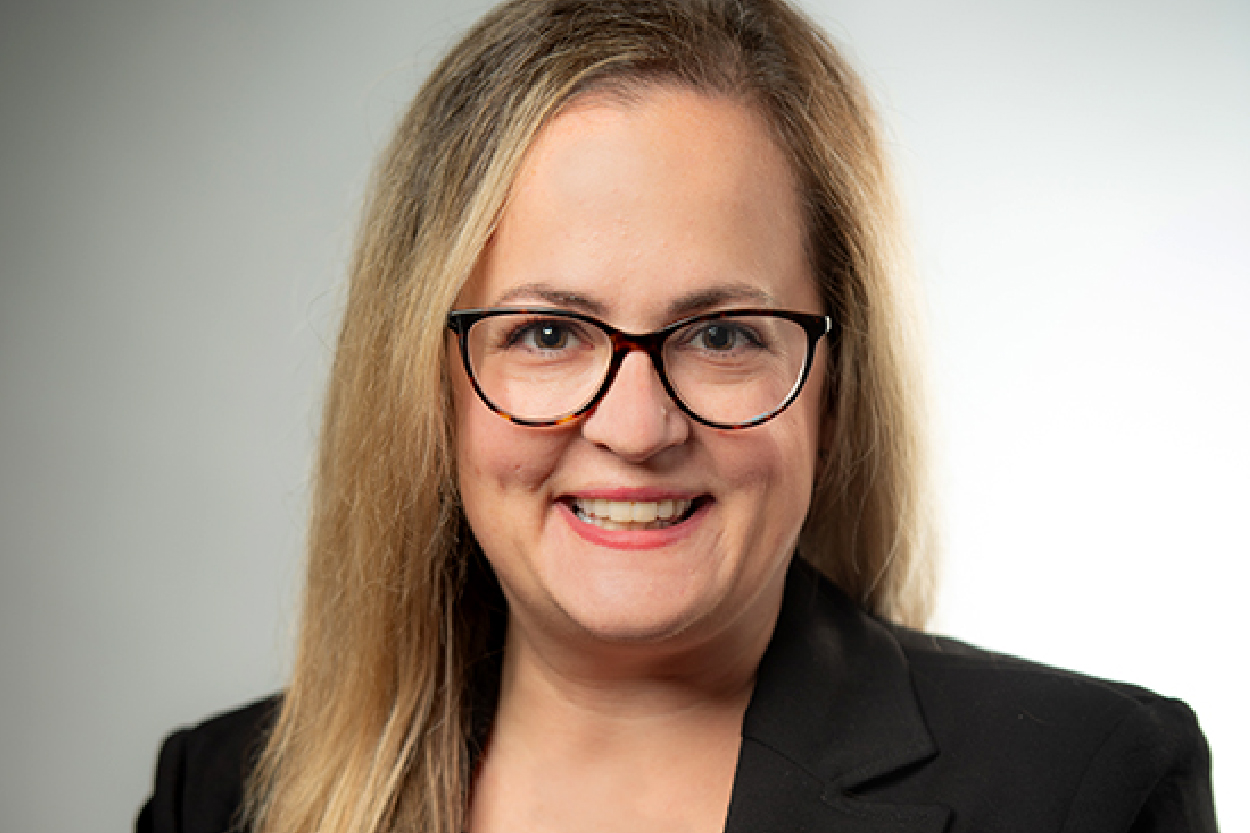
Elena Maria Gottreich has over 15 years of experience in criminal justice, with a focus on law, legislation, and policy reform. Elena lends her expertise to CJI’s policy team, which assists states in implementing data-driven strategies to enhance public safety and navigating the changing landscape of criminal justice reform. Elena was a county criminal prosecutor for over a decade, culminating with an appointment as a Special Assistant United States Attorney. Elena led several legislative initiatives pertaining to pretrial, firearm, and policing policies while employed as a deputy director for a police department and later as a deputy mayor for public safety. Elena is driven by the lasting impact that truly collaborative and data-based policies can have on the criminal justice system. Elena holds a Bachelor of Arts in Political Science from Emory University and a Juris Doctorate from Chicago-Kent College of Law.
Emily LaGratta, J.D., is a national subject matter expert on the topics of trust-building and procedural justice who has worked within the legal system since 2009. In leading LaGratta Consulting, she works with local and national agencies to design and implement innovative programming and research studies, engage end-users and utilize their feedback, and develop practitioner resources and training tools. She has published dozens of practitioner-facing products, including To Be Fair, We Want to Hear From You!: A Toolkit for Collecting and Learning from Court User Feedback, Procedural Justice in Action, and Measuring Perceptions of Fairness: An Evaluation Toolkit. Before starting LaGratta Consulting, Emily was the Director of Procedural Justice Initiatives at the Center for Justice Innovation, a national non-profit where she led a training and technical assistance team on the topics of procedural justice and community justice. She is a graduate of the University of Wisconsin Law School.
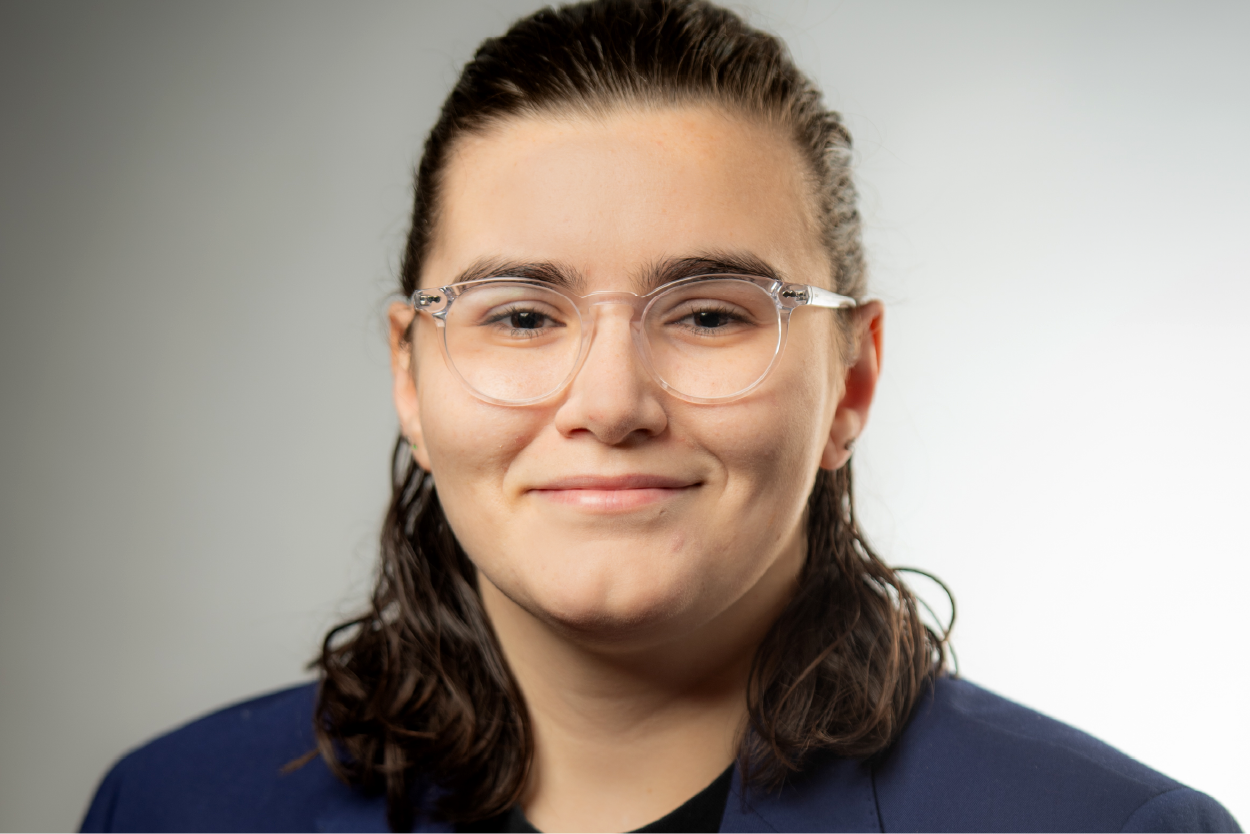
Cheyenne Bourgeois joined the CJI team in 2022 as an intern and was promoted to policy analyst in 2024. Cheyenne helps create, plan, and publish the annual Coming Home Directory, which supports people returning from incarceration to the Boston area and beyond. Cheyenne also supports the work of the Justice Reinvestment Initiative implementation projects across the country. She holds a Bachelor of Science in Psychology, and a Master of Science in Crime and Justice Studies from Suffolk University. Cheyenne is committed to working on equitable and just data-driven policy across the United States.
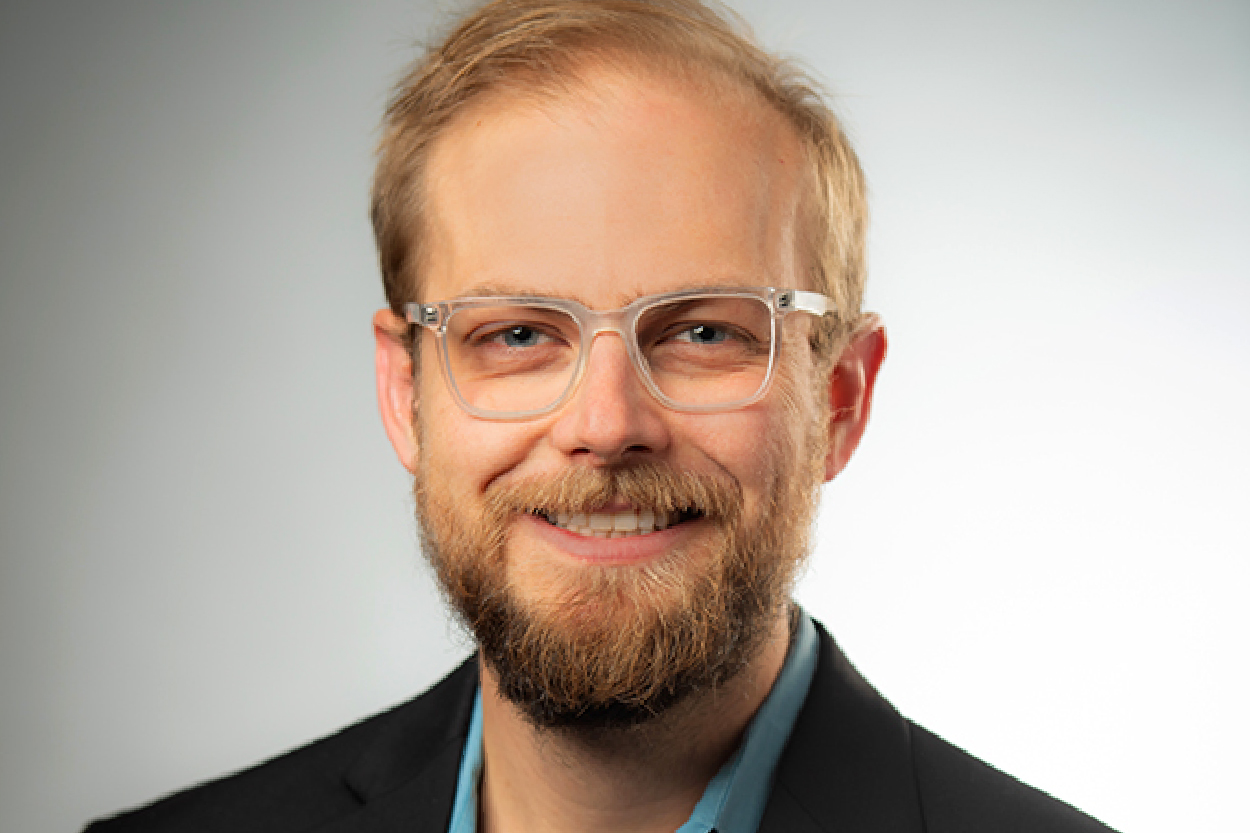
Jordan Holsinger joined CJI in January 2024 and has focused his career on employing data-driven insights and social science frames in applied settings. He is a member of CJI’s pretrial team and collaborates on projects that use quantitative methods to improve the efficiency and outcomes of pretrial systems. Prior to CJI, his academic career included research on courts, civic engagement, and nonprofits. Jordan is committed to using data to build confidence in our criminal justice institutions, as well as create better outcomes for people and communities affected by the criminal justice system. He holds a PhD and MS in Political Science from Florida State University.
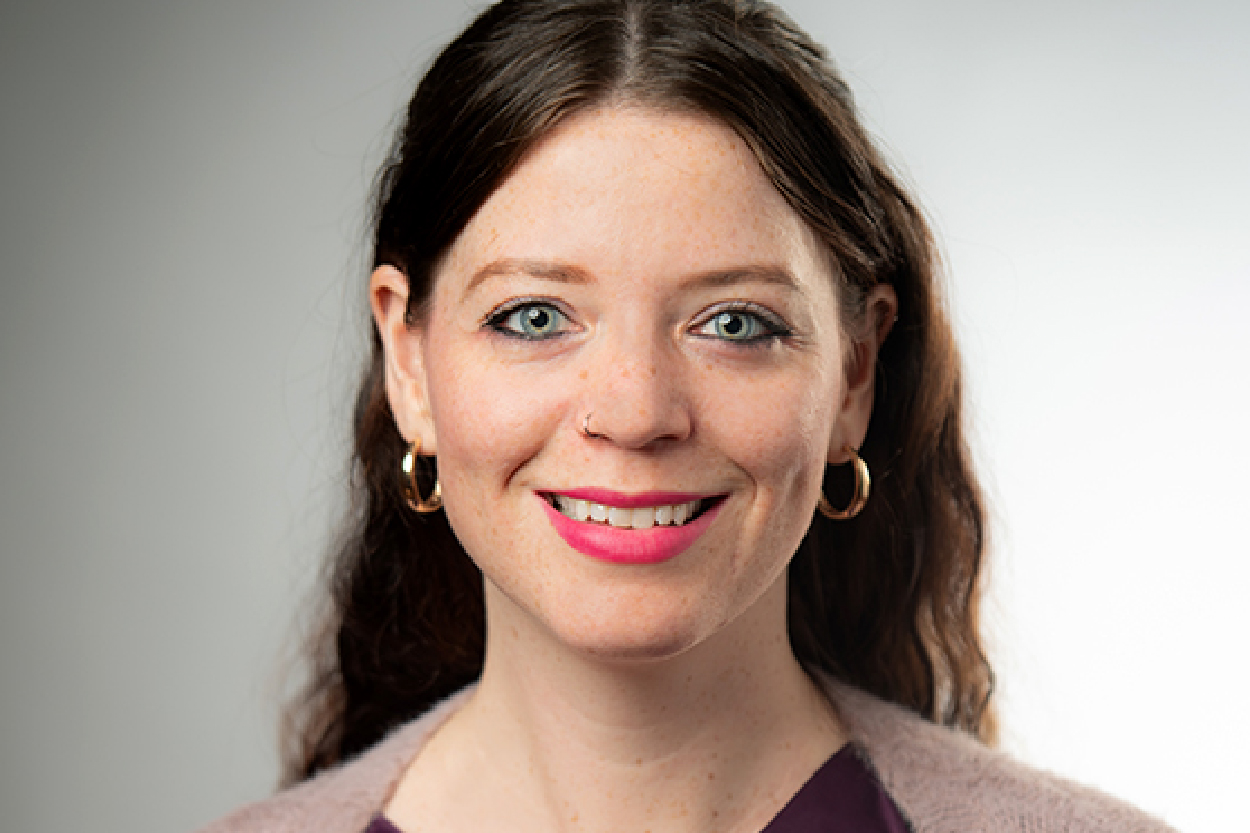
Elle Rochford has worked in the social sciences for nearly a decade as a researcher, award-winning college instructor, and DEI consultant for a community corrections nonprofit organization. At CJI, Elle leads our assessment and evaluation work, specifically focused on assessment of Justice Reinvestment Initiative efforts in states CJI has provided technical assistance. Elle has published peer-reviewed academic articles and chapters on social inequalities, the legal system, and gender-based violence as well as popular press pieces and podcasts for general audiences. Elle is a committed science communicator who is passionate about evidence-based best practices. Elle holds a BA in Studio Art from Hiram College and an MS and PhD in Sociology from Purdue University.

Josh Bowdridge joined CJI in September 2023 to work on the Restrictive Housing team and other projects that impact the lives of people living and working in correctional facilities. Josh has over 21 years of experience in criminal justice including time as a correctional officer, work release job developer, director of community corrections centers, and assistant superintendent of programs at a county correctional institution in Massachusetts. Josh also brings experience as an FBI trained crisis negotiator with a regional SWAT team made up of local police and county sheriff organizations. Josh works to assist agencies in breaking down barriers that keep them improving the quality of life for those working in correctional institutions and those incarcerated across the country. Josh has a bachelor’s degree in criminal justice from the University of Massachusetts Amherst and trainer certifications from the National Institute of Corrections, the Massachusetts Commission Against Discrimination, and the Massachusetts Executive Office of Equal Opportunity and Affirmative Action.

Prior to joining CJI’s policy and Implementation teams, Courtney began her career in criminal justice at a state parole and probation department. There, she supported various efforts including warrants and extraditions, human resources, and pre-sentence investigations. At CJI, she supports the JRI Policy and Implementation teams. She is passionate about improving the lives of those impacted by the criminal justice system, and strives to work closely with juvenile justice, local and state government reform to better communities across the country. She is currently pursuing a Bachelor of Art in Criminal Justice and a minor in Pre-law from Nevada State University. She plans to pursue a Juris Doctorate from William Boyd School of Law following graduation.
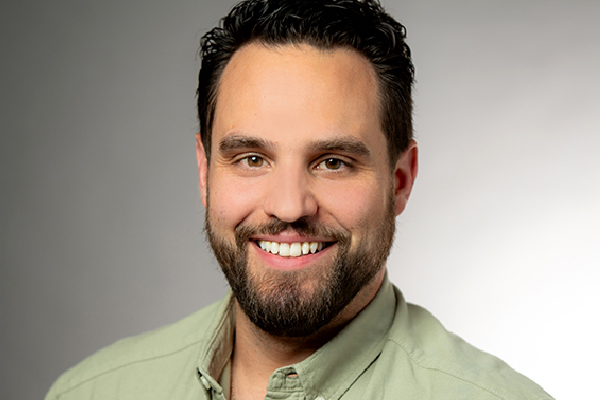
Josh Vezza has over a decade of experience in the nonprofit, tech, and policy communication fields. His career started in Washington, D.C., working to expand economic opportunities and advancements for LGBT-owned and operated businesses. Most recently, Josh led communication and multimedia strategies at a global technology company aimed at improving transparency and knowledge of complex policies for public audiences. At CJI, Josh leads the communications team and works closely with leadership to execute a comprehensive communications plan supporting CJI’s nationally leading work in justice system improvements across the nation. Josh holds bachelor’s degrees in Communications and Political Science and a minor in Legal Studies from the University of Pittsburgh.
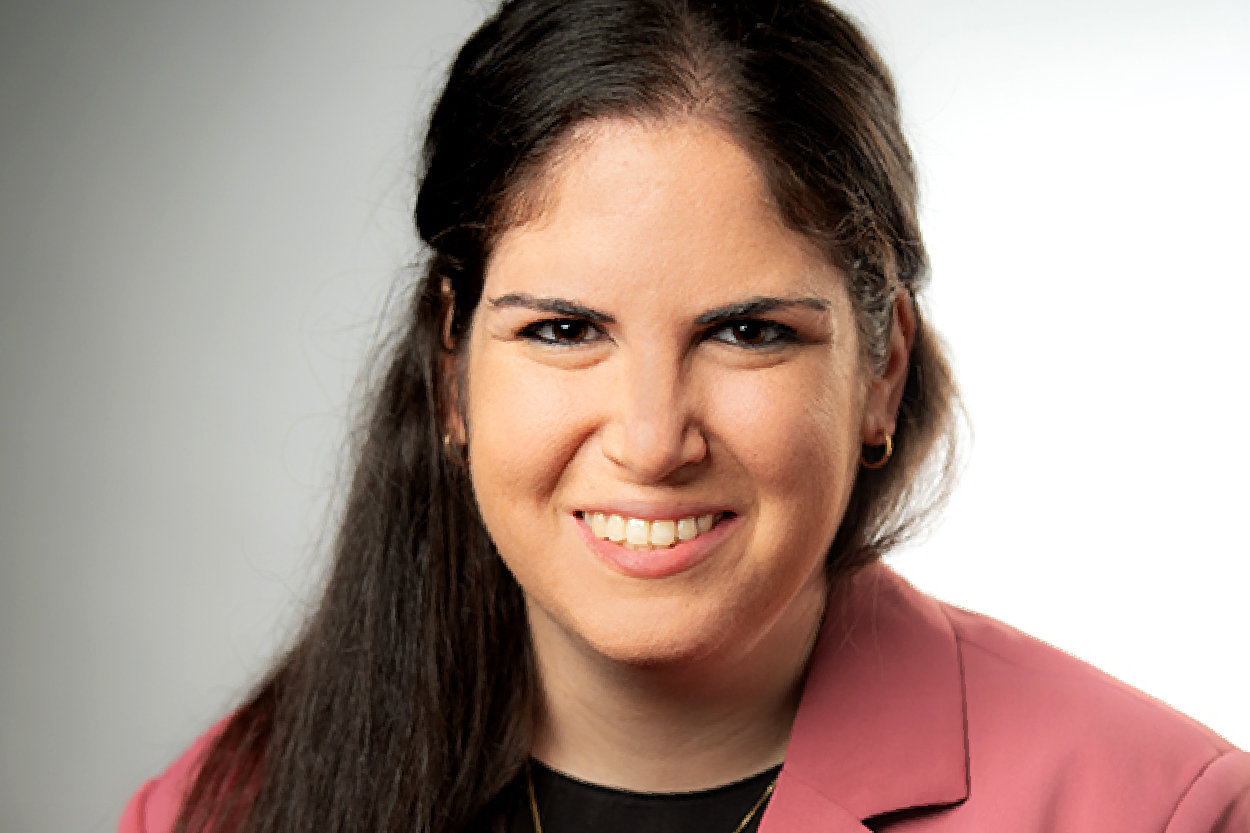
Yael (yah-elle) brings nearly a decade of experience working for state legislatures to CJI’s Policy team. In her role, Yael supports the Justice Reinvestment Initiative in providing technical assistance for state and local stakeholders seeking to improve self-identified challenges within their criminal justice systems. Yael believes in the power of diverse groups working together to make policy recommendations that have lasting positive impacts. She is committed to serving as a facilitator of this process by collaborating with local partners to promote public safety, reduce harm, and improve the lives of justice-involved individuals and their communities. Yael holds a BA in Jewish Studies and Government from Smith College and a Master of Public Administration with a focus in Gender, Leadership, and Public Policy from the University of Massachusetts, Boston.
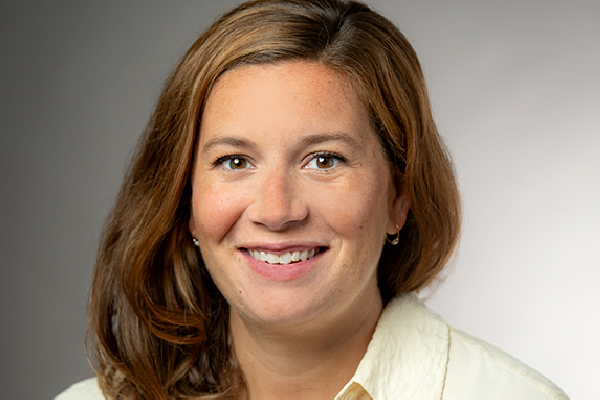
Ellen Spolar has over 10 years of experience in the criminal justice field at the state and federal level. Previously, Ellen served as senior policy advisor for an attorney general’s office and as project manager for a governor’s statewide Task Force for Racial Equity in Criminal Justice. Ellen’s work at CJI focuses on Justice Reinvestment and improving states’ adult justice system through data analysis, policy development, and legislative reform. Ellen is passionate about reforming our collective approach to public safety to minimize reliance on incarceration and help address root causes of criminal justice system involvement. She holds a BA in International Studies from University of Wisconsin – Madison and an MA in Public Policy and Administration from Carnegie Mellon University.
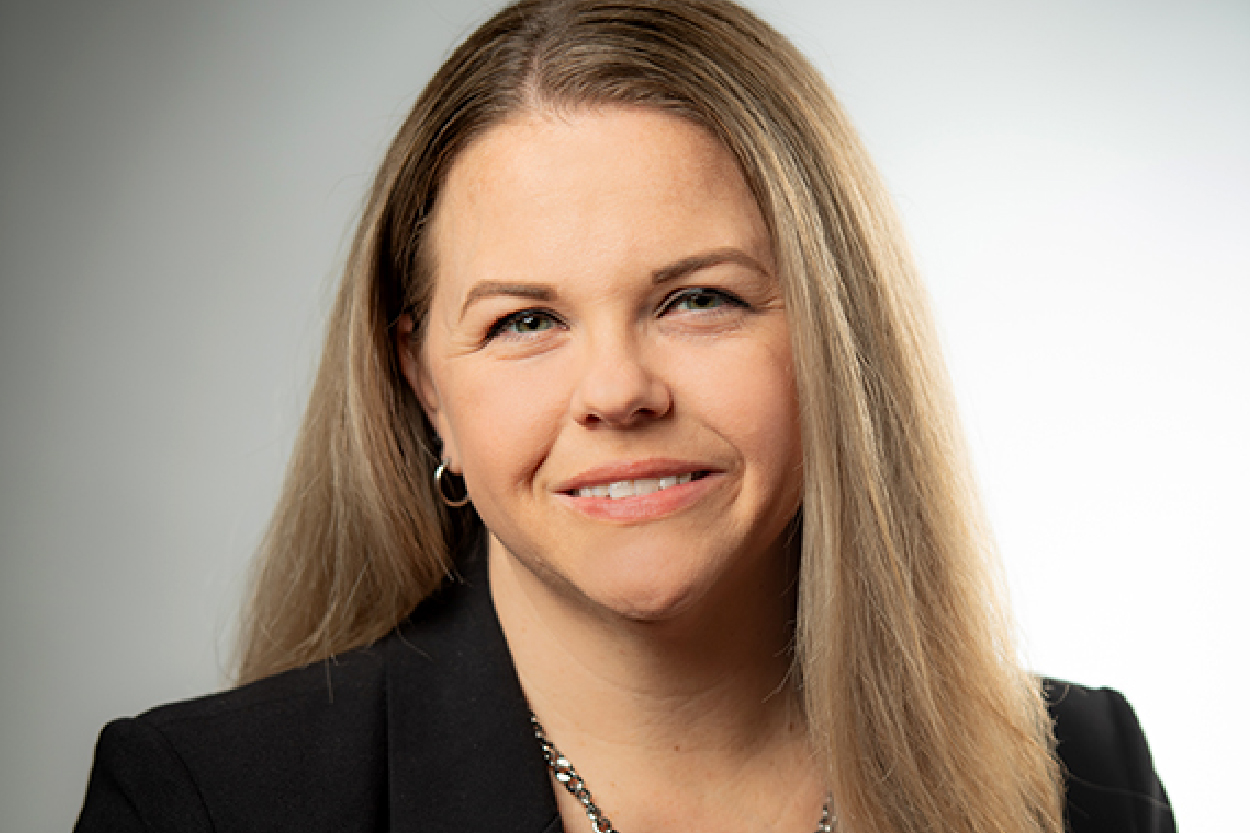
Nikki Reed joined CJI in June 2023. She has over 10 years’ experience in business management with a proven track record in optimizing business operations and increasing efficiency. Nikki is committed to utilizing her knowledge to improve the quality of criminal justice programs, and she supports the advancement of adult and juvenile justice reform initiatives and data-driven policies. Nikki holds a Bachelor of Science in Criminal Justice from Walden University, with certifications in Handwriting Analysis/Questioned Documents, Forensic Fingerprint Analysis, Crime Scene/DNA, and Blood Splatter Analysis.
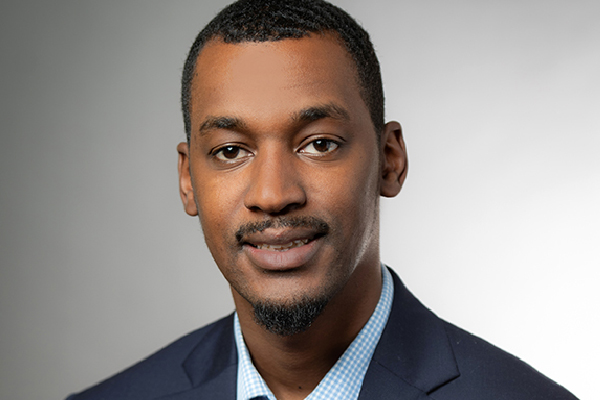
Prior to joining CJI in July 2023, Dondre’ assisted the management of local government departments and programs. There, he began as a performance analyst for city youth jail and parks and recreation departments, analyzing data and supporting the execution of departmental strategy. Later, he served as program manager for the city’s deterrent efforts against group violence, partnering with local, state and federal law enforcement officials as well as community partners. Dondre’ has a Bachelor in Sociology and a Master in Public Administration with a focus in city governance from the University of Louisville.
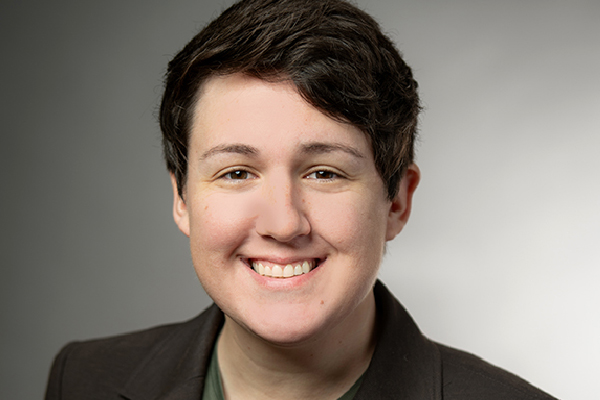
Lauren Leonard has over a decade of experience working with the criminal justice, law enforcement, and defense communities. Her early career as a US Army intelligence analyst ignited a passion for the role of intelligence and data in the decision-making process. She has since worked with law enforcement and government agencies to develop internal auditing and policy compliance processes. Before joining the CJI team, Lauren served as an FBI special agent, which afforded her the opportunity to collaborate with police, corrections, court, and community leaders to understand possible pathways to a more equitable criminal justice system. She holds a Master of Science in Law Enforcement Intelligence & Analysis from Michigan State University and a Bachelor of Science in Criminal Justice & Law Enforcement Administration from Colorado State University.
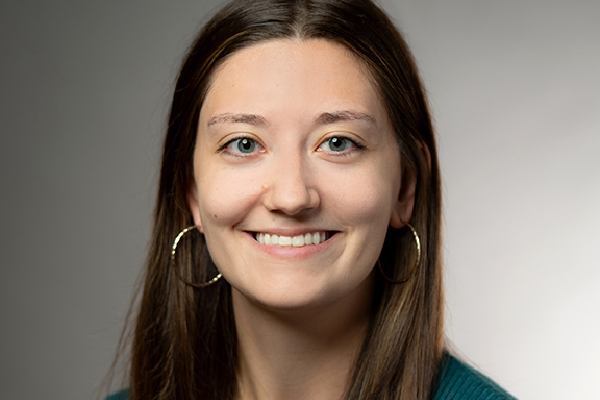
Rachel Schmidt joined CJI in July 2023 and brought with her previous experience evaluating prison policies and programs on their implementation and effectiveness. Within CJI, she works primarily on Justice Reinvestment Initiative projects by conducting data analysis and policy work. Her work focuses on finding data-driven evidence to inform policies and practices within the criminal justice system to reduce recidivism and improve outcomes for justice-involved individuals. She holds a Bachelor of Science in Criminal Justice and Psychology and a Master of Arts in Interdisciplinary Studies from the University of South Dakota, where she specialized in Addiction Studies and Counseling.
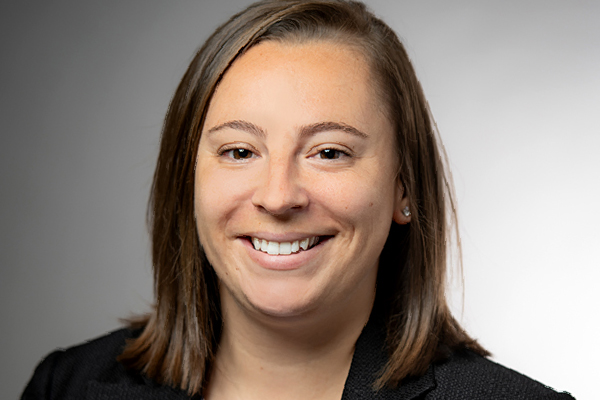
Erica Bower joined CJI in June 2023, prior to which she worked in academic roles in sociology, criminology, and criminal justice. In the academic setting, Erica conducted research related to school discipline issues and racial disparities in the adult justice system; instructed courses related to youth justice, corrections, and social inequality; and helped undergraduates find opportunities to learn from professionals in the field. Erica is part of CJI’s youth justice and policing teams and works on several projects analyzing data to improve these systems. Erica most recently led a collaborative effort to implement and evaluate community-based trainings in mental health and adverse childhood experiences (ACEs) in rural Tennessee; previously, she worked on bail reform evaluation in Norfolk, Virginia. Her work has been published in peer-reviewed journals including American Journal of Criminal Justice and The Social Science Journal. Erica is committed to advancing the field by using data-driven solutions to address critical issues in adult and youth justice systems. Erica holds a PhD in Criminology and Criminal Justice from Old Dominion University.

Jeanine Johnson has 11 years of experience in state policy, concentrating over eight years on criminal justice and policing. Jeanine provides support to the Justice Reinvestment Initiative, advancing evidence-based and data-driven policies to improve system responses and create better outcomes for impacted youth, adults, and communities. She is driven by a desire to create policies that support dignity and enhance the community and public safety. She graduated from Temple University with a Bachelor of Social Work and a Master of Professional Studies in Legislative Affairs from The George Washington University.
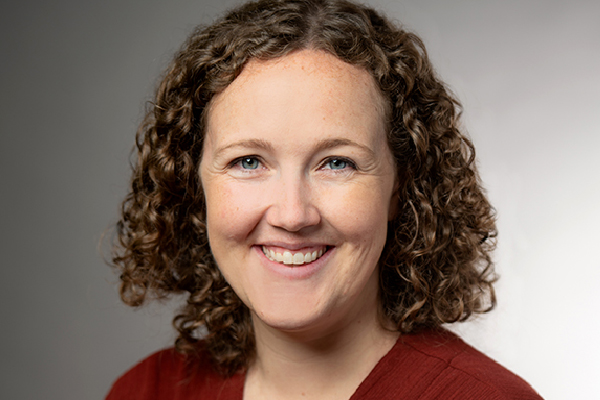
Melanie has worked in the criminal justice field for over seven years, including directing programming at a sheriff’s department and leading multidisciplinary problem-solving court teams for a state judicial district. At CJI, Melanie provides support to Justice Reinvestment Initiative projects focused on juvenile and adult justice systems. Melanie has extensive experience developing and implementing programs that connect system-involved individuals to resources and treatment. She is committed to advancing policies that promote equity in the criminal justice system and improve outcomes for individuals, families, and communities. Melanie holds a Bachelor of Science in Foreign Service from Georgetown University and a Master of Public Policy from the University of Michigan.
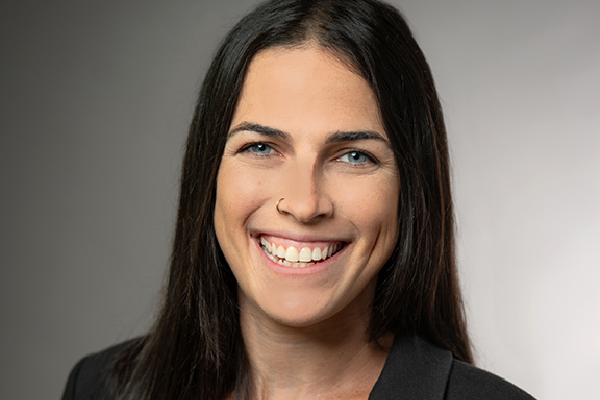
Mackenzie joined CJI in March 2023 and works primarily on CJI’s Justice Reinvestment Initiative projects to support the formation and implementation of evidence-based reforms. Formerly, Mackenzie worked as a research analyst in consumer insights for a global company where she wrote surveys and conducted advanced statistical analyses to enhance data-driven decision making in the corporate sphere. Her research has been published in peer-reviewed journals including Justice Quarterly, Journal of Interpersonal Violence, and the American Journal of Criminal Justice. She is committed to applying her skills and passion for evidence-based justice reform to strengthen criminal and juvenile justice systems in local communities across the country. Mackenzie received her MS in Criminology & Justice Policy from Northeastern University and her PhD in Criminology & Law from the University of Florida, where she focused on childhood victimization, adverse childhood experiences, and justice policy.
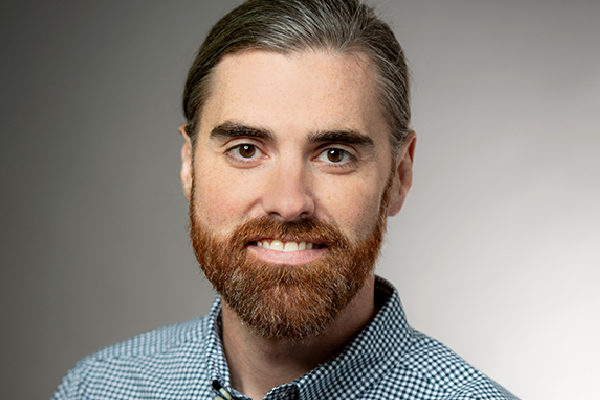
Bryson Bellow has over 12 years of state and federal law enforcement and community supervision experience. Bryson uses his expertise along with data-driven, evidence-based strategies to strengthen the quality and fidelity of the implementation phase of the Justice Reinvestment Initiative process. He was recognized by the Nevada Chief Parole and Probation Officer for his work on adult justice reform, where he was the lead policy and training manager. Bryson is motivated by his personal and professional experiences within the justice system and is unyielding in his pursuit of reform. Bryson is pursuing a bachelor degree and plans to obtain a Master of Criminology, Law, and Society.
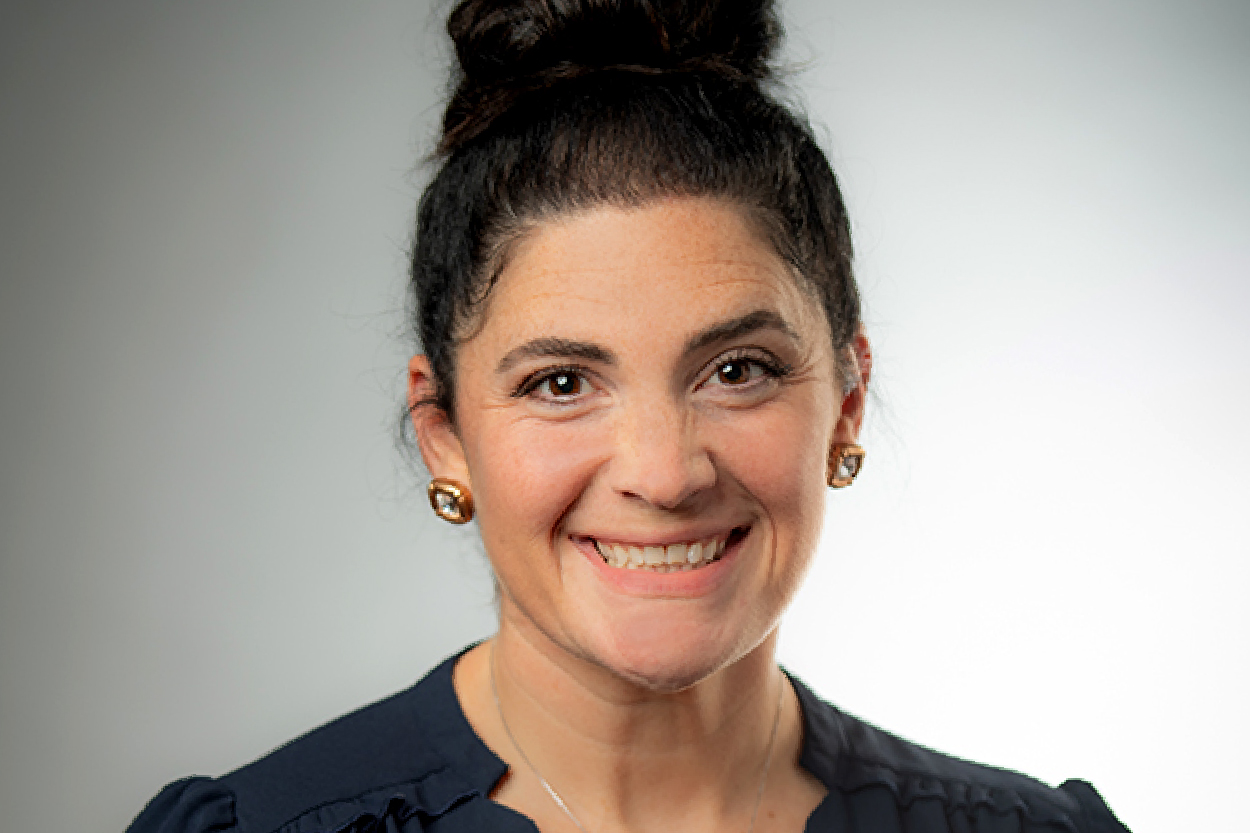
Colleen has over 20 years of experience in the fields of law enforcement and behavioral health services. Colleen supports CJI’s Policy Team in implementing Justice Reinvestment Initiative efforts using evidence-based, data-driven strategies. Colleen is an Army veteran and a former police officer. Most recently, Colleen worked as a senior clinician for Community Strategies-Massachusetts, a division of Community Resources for Justice.
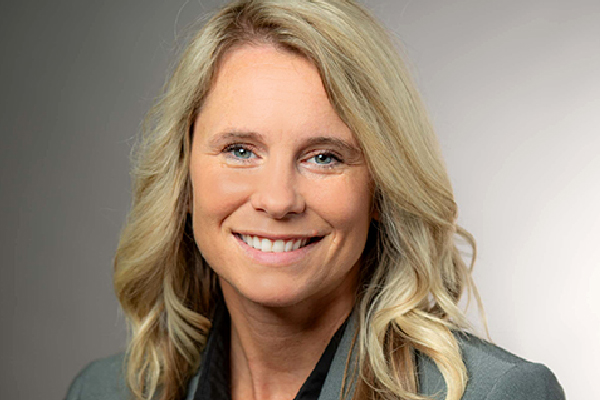
Becky Altman has been working in the criminal justice field for over a decade, with a focus on probation practices and the implementation of evidence-based projects. Becky is part of the implementation teams for pretrial and restrictive housing projects at CJI. She has experience as a collaborator and problem solver with legislators, judges, law enforcement, and practitioners, building lasting change across justice systems. Becky is committed to advancing the field by supporting stakeholders in implementing data-driven strategies to positively impact justice-involved people. She graduated from South Dakota State University with a Bachelor of Arts in Sociology and earned her Master of Science in Criminal Justice Administration from the University of South Dakota.
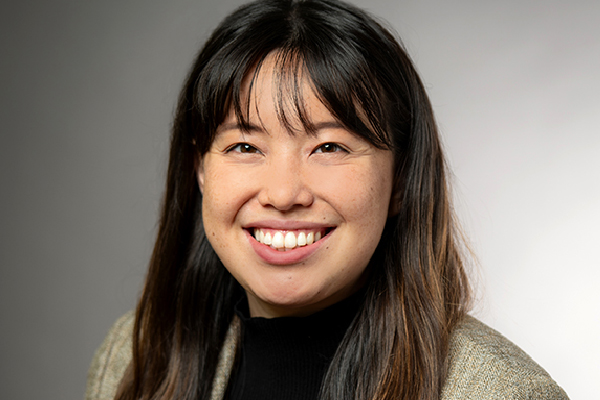
Maya began her career in public safety and has since worked in the areas of counterterrorism and policy reform research. At CJI, she primarily supports the implementation team through the Justice Reinvestment Initiative. Learning from her experiences working with justice-impacted individuals, Maya is passionate about contributing to the ongoing work of serving and bettering our communities by improving justice system outcomes. Maya graduated from Northeastern University where she received a Bachelor of Arts dual degree in Criminal Justice and International Affairs, as well as a Master of Science degree in Criminal Justice and Criminology.

Nikki brings 14 years of experience in corporate communications to her role on CJI’s communications team, drawing from a background in federal law enforcement as well as private-sector communications agency experience. During her tenure at a federal joint agency organization, she was recognized for her role in marketing and scaling an award-winning evidence-based interview training program for domestic and international law enforcement and intelligence audiences. At CJI, Nikki collaborates with leadership and project teams to provide strategic internal and external communication solutions and impactful deliverables to advance CJI’s goals. Nikki is passionate about using effective communication to activate audiences and inspire support for reforms that improve communities and individual well-being. Nikki holds a Bachelor of Art in English Writing and Rhetoric from Salisbury University and is completing a Master of Professional Studies in Public Relations and Corporate Communications from Georgetown University.
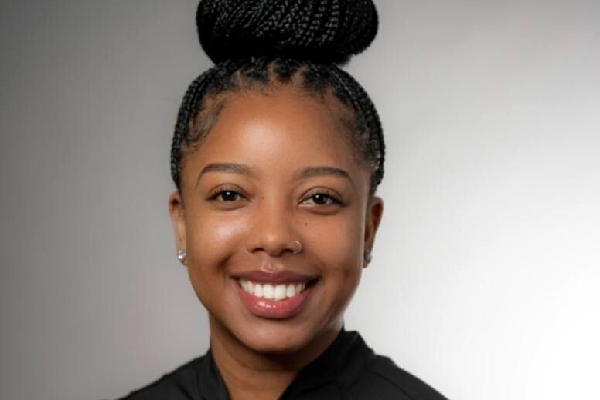
Jhamiel began her career as a graduate research intern supporting projects that assessed the intersection between incarceration and housing instability. She has since worked with organizations to improve and expand government resources for youth and families. As a policy analyst, Jhamiel primarily provides implementation support to the youth justice team. She is committed to improving outcomes for youth, ending mass incarceration, and creating equitable opportunities for individuals returning from a period of incarceration. Jhamiel holds an MA in Sociology Research and Practice from American University and a BS in Sociology from Florida A&M University.
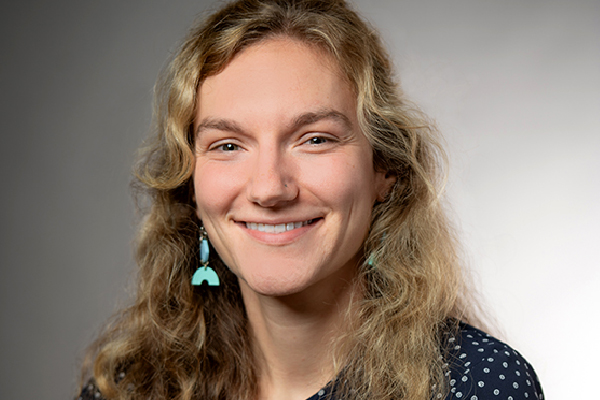
Ashley is an accomplished graphic designer with extensive experience in the non-profit sector. As a member of the Communications Team, Ashley leads efforts to build CJI’s brand identity and create visually engaging external deliverables that advance project goals. She previously served as a graphic designer for a supportive housing non profit in San Francisco, where she worked to develop its branding and streamline the design process. Ashley is driven by creating accessible and engaging visual messaging, combining her passions for design and social justice. Ashley graduated from Kansas State University with a BFA in Graphic Design.
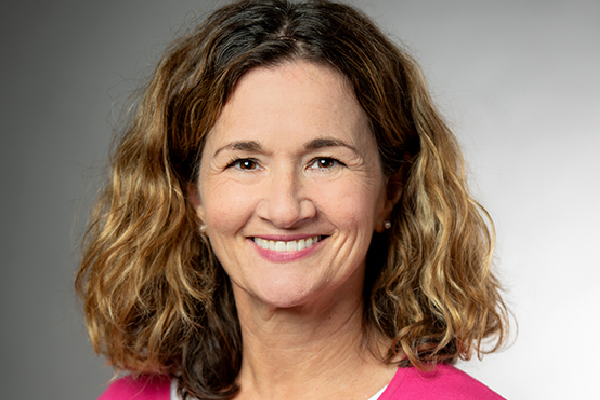
Maureen Flanagan has worked in the criminal justice system for over 25 years. She started her career as a probation officer in the United Kingdom and subsequently spent 22 years working in juvenile justice in Connecticut. Maureen brings experience in implementation of evidence-based practices in a community corrections setting. Maureen works on implementation for Justice Reinvestment Initiative projects around the country. She is motivated by a belief that fair and effective justice systems are possible. Prior to working for CJI, Maureen worked as a Juvenile Probation Supervisor for the State of Connecticut Judicial Branch. She received a Masters of Arts in Social Work Studies from the University of Exeter, England, and a Bachelors Degree in Psychology and Foreign Languages from Assumption University in Worcester, MA.

Charlie has more than 10 years of experience as a writer, communications specialist, and educator. Charlie has taught higher education courses in technical communication, creative writing, and literature, training thousands of students from more than 50 countries to write successfully for their professional careers. He previously developed messaging campaigns for a global retail corporation as a subject matter expert for divisions that included operations, logistics, legal, and marketing. At CJI, Charlie strategizes and manages multiple projects, creating high-quality deliverables for use across a variety of platforms. Charlie earned English degrees from Susquehanna University (BA), William Paterson University (MFA), and the University of North Texas (PhD).
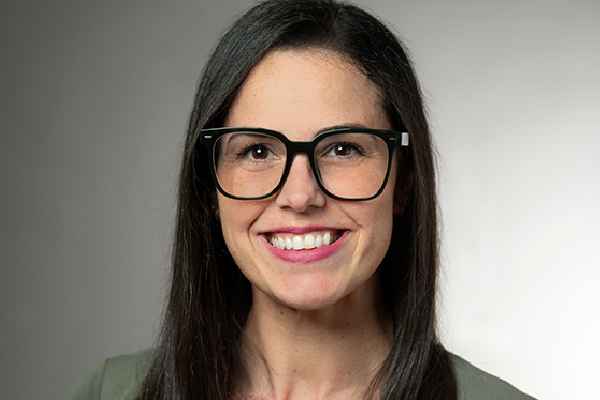
Vanessa Thompson brought with her over eight years of experience working on state-level criminal justice policy and building coalitions before joining CJI in December 2022. She leads CJI’s JRI Assessment Center (JAC) and Ripening efforts while supporting Justice Reinvestment Initiative engagements and Sustainability projects. Vanessa has extensive experience cultivating collective partnerships with state policymakers, law enforcement, criminal justice practitioners, business leaders, community stakeholders, and advocacy organizations and supporting the creation, passage, implementation, and longevity of evidence-based reforms. She is driven by the ways criminal justice reform and second chances change people’s lives for the better. She is also passionate about strengthening alternatives to incarceration that address mental and behavioral health needs. Vanessa graduated from the University of South Florida with a Bachelor of Science in Entrepreneurship and International Business and a Master of Business Administration in Management and Marketing.
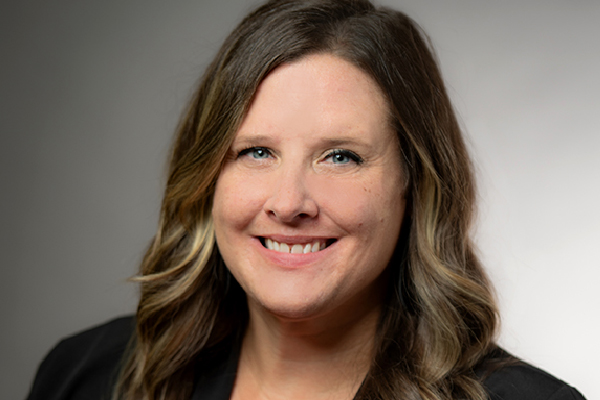
Amber Nogelmeier has more than 15 years of state-level experience in youth justice and child welfare systems. Amber is part of the implementation team for the Office of Juvenile Justice and Delinquency Prevention’s Second Chance Youth Reentry Program, assisting agencies in improving community supervision practices and achieving positive outcomes for youth and their communities. She brings experience in effective case management and community supervision practices conducive to youth rehabilitation, along with experience in collaboration to enhance relationships across stakeholders. Amber is a passionate life-long learner, driven to support others in the implementation of evidence-based practices and incorporates a strengths-based approach to create a positive impact in youth justice. She graduated from South Dakota State University with Bachelor of Arts in Spanish and earned her Master of Business Administration degree from Mount Marty College.
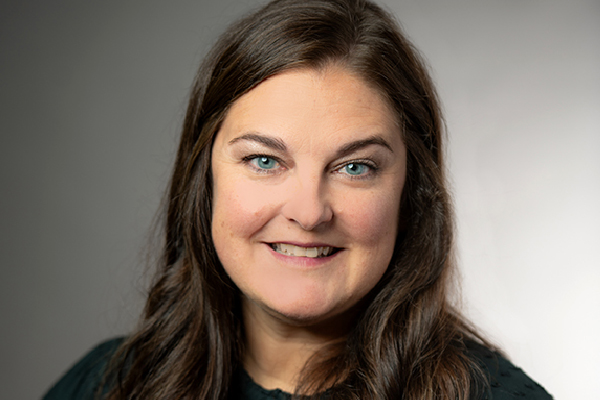
Jessica Cook has over 20 years of experience working in adult prisons, most recently focusing on facility administration of both programs and operations, and restrictive housing policy and procedure. At CJI, Jessica’s work is focused on restrictive housing training curriculum development for the National Institute of Corrections and working with multiple state correctional agencies to safely reduce their use of restrictive housing through the Bureau of Justice Assistance Restrictive Housing Reform Implementation Assistance Program. Jessica is committed to supporting agencies in their approach to creating and implementing strategies that carry out their mission. Jessica graduated from the University of South Dakota with a Bachelor of Science in Psychology and Substance Abuse Studies.
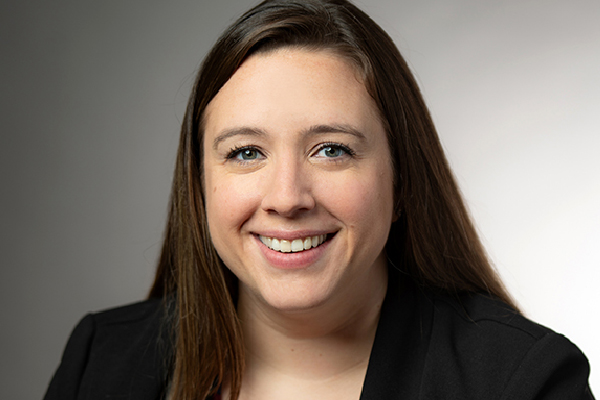
Caitlin started her career as a public defender and has provided training and technical assistance to different jurisdictions working towards criminal justice reform through treatment courts, pretrial interventions, and community supervision reform. Caitlin leads CJI’s community supervision revocation reform work, assisting states with data-driven, evidence-based strategies to improve supervision outcomes. Caitlin is committed to reforming the justice system through the use of data-driven approaches that reduce the reliance on incarceration, strengthen community supervision practices, and include diverse voices in planning and implementation work. She received her Bachelor of Arts in Government & Law and Philosophy and her Juris Doctorate from New York University Law School.
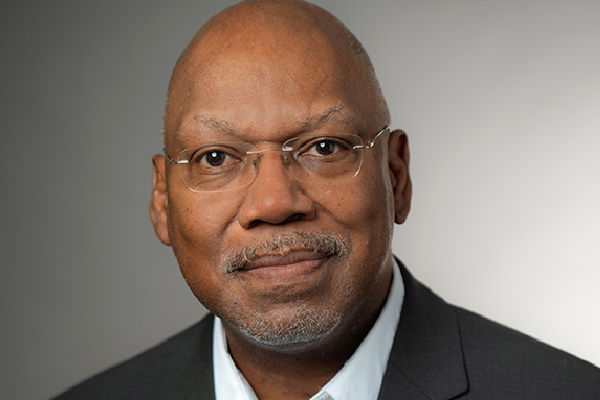
As vice president of the Crime and Justice Institute, Spurgeon Kennedy guides the institute’s efforts to bridge the gap between research and practice with data-driven solutions that drive bold, transformative improvements in adult and youth justice systems.
Spurgeon has provided technical assistance and support to local, state, and national justice systems and organizations on issues such as improving bail decision-making, implementing outcome and performance metrics, developing pretrial services agencies, system mapping, pretrial diversion, and work- and caseload analysis. He also has served as a facilitator and training faculty member for agencies such as National Association of Pretrial Services Agencies (NAPSA), the National Institute of Corrections, the National Institute of Justice (NIJ), the American Probation and Parole Association, the Office on Violence Against Women, the American Civil Liberties Union, and state and federal court, pretrial, and corrections organizations.
Spurgeon holds a Bachelor’s Degree in Political Science and a Masters in Public Administration, both from the George Washington University.
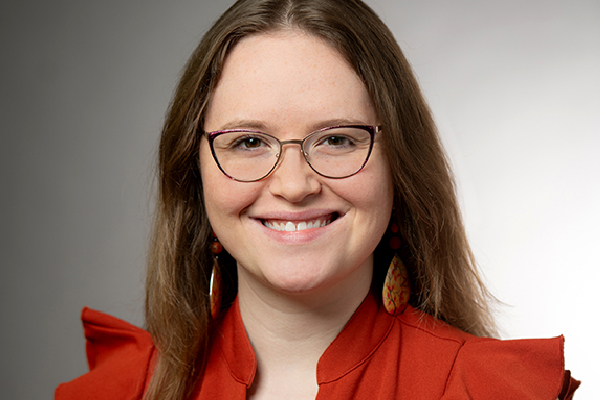
Yasmin Eriksson brings with her years of experience working with attorneys, police officers, policymakers, and formerly incarcerated people across the country to advocate for criminal justice reform. Her work at CJI focuses primarily on CJI’s Justice Reinvestment Initiative (JRI) project, assisting states with reforming their justice systems to reduce recidivism and improve public safety. She supports the JRI Phase I team that reviews state adult justice systems and helps with drafting, the passage of and implementation of reforms. She also supports the pretrial team with evaluating the pretrial systems of local jurisdictions against best practices and issuing recommendations for reforms. Yasmin is critical of the deeply adversarial nature of our justice system, and she believes strongly in diversion programs that employ restorative justice practices. She is ultimately committed to a vision of a justice system that repairs rather than exacerbates harm in communities. Yasmin holds a Bachelor of Arts degree from Yale University in Ethics, Politics and Economics.
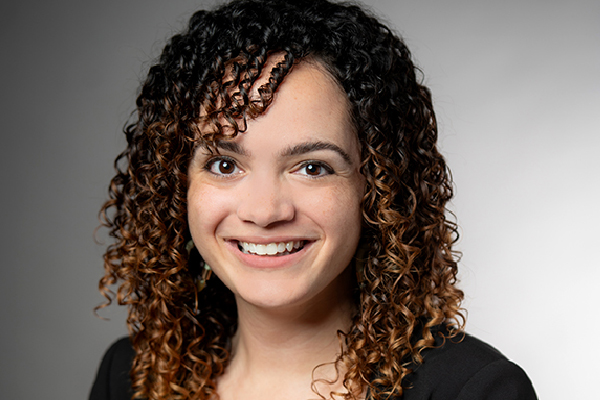
Andrea Tyree began her career with the criminal legal system organizing beside impacted communities. She has since worked with law enforcement agencies in advisory and research roles. As a member of the policing team, Andrea contributes to foundational research and evaluation of agency practices. Andrea is committed to assisting law enforcement stakeholders and the communities they serve through the data-driven decision-making that can generate safe and equitable practices for all involved. Andrea holds a Bachelor of Arts degree in Political Science from Howard University and a Master of Public Policy degree from Brandeis University.
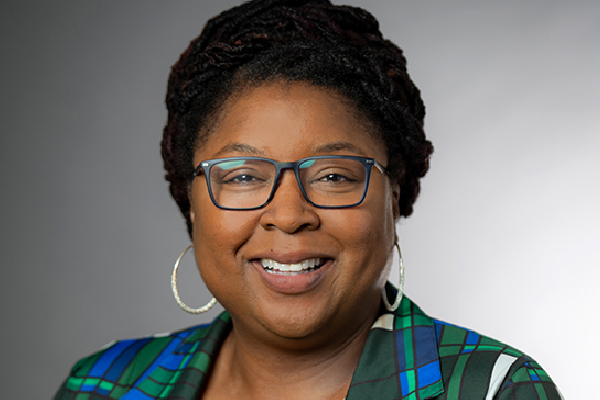
Quanette Garth has 18 years of extensive experience as a collaborator, facilitator, and trainer of various stakeholders within the criminal justice field at the state and federal level. In working with the justice-involved adult population, she has gained expertise in cognitive-behavioral interventions, continuous quality improvements, implementation, fidelity, evidence-based practices, and curriculum design. Quanette is passionate about and committed to advancing recidivism reduction efforts through sustainable implementation of research-based practices. Quanette graduated from the University of St. Mary’s with a Bachelor of Arts in Applied Psychology and Master of Science in Counseling Psychology.
Lisa Margulies is an attorney with extensive experience in direct service, technical assistance, and grantmaking. As an independent consultant, Lisa focuses on policy analysis, communications, and project management, with specialized expertise in criminal and juvenile justice and issues affecting young people.
Lisa was most recently a Program Associate at the John T. Gorman Foundation in Portland, Maine. In this role, she developed and implemented investment strategies that advanced Foundation priorities, with a focus on improving results for young people in Maine. Prior to working in philanthropy, Lisa was a Senior Policy Specialist for the Crime and Justice Institute (CJI) at Community Resources for Justice, where she led teams providing technical assistance to state governments in examining their laws and practices and developing data-driven, evidence-based policies to improve their criminal and juvenile justice systems. Lisa also served as an Assistant Public Defender at the Defender Association of Philadelphia, where she represented clients facing criminal charges in state court matters, including felony and misdemeanor trials, probation and parole hearings, and juvenile court hearings. Before becoming an attorney, Lisa taught mathematics in New York City Public Schools as a New York City Teaching Fellow and worked in the field of human rights in Southeast Asia.
Lisa received a B.A. from Columbia University, where she received highest honors and was nominated to Phi Beta Kappa. She holds an M.S. in Education from City University of New York and a J.D. from the University of Pennsylvania, where she was a Toll Public Interest Scholar. She is a member of the state bars of Maine and Pennsylvania. Lisa lives in South Portland, Maine.
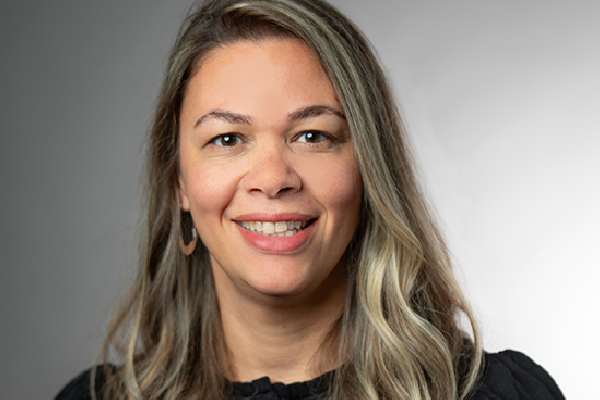
Clarissa has over 10 years of experience working in justice systems on evidence-based solutions to improving community and institutional corrections. At CJI, her work is focused primarily on the Restrictive Housing Reform Implementation Assistance Program. As part of this program, Clarissa leads data collection, analysis and capacity building efforts to assist states with implementation and monitoring of practices to safely reduce the use of restrictive housing. Formerly, Clarissa worked at the Georgia Department of Community Supervision (DCS), where she was responsible for analyzing data and looking for effective and efficient ways to improve the lives of individuals returning to their communities. Clarissa also worked internationally within justice systems in Brazil to support fact-based and research-focused legal processes. Clarissa is passionate about creating better decision-making processes that provide justice professionals with the tools to leverage more equitable practices within their agencies. Clarissa holds a Master of Arts in Criminal Justice and a PhD in Political Science, both from Georgia State University. She also earned a Juris Doctorate from the Universidade Catolica de Pernambuco and has been a member of the Brazilian Bar since 2003.
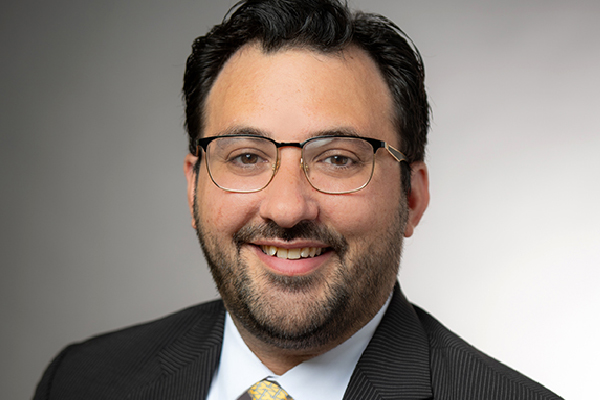
Will began his career as legislative assistant in the United States Congress, specializing in appropriations. Subsequently, he was an attorney in Boston, primarily representing indigent criminal defendants as a public defender. He is the author of numerous op eds and commentaries, and has been published in the Boston Globe, the Appeal, and elsewhere. Will works on a variety of projects in his current role at CJI, primarily focusing on jail and pretrial policy. Will is committed to finding data-driven methods to reduce incarceration and make the criminal legal system more humane. He holds a bachelor’s degree in history from American University and a juris doctorate from New England Law Boston.

Brian McLaughlin has over 20 years of experience in the field of adult and youth justice, with expertise in the areas of child and adolescent brain development, trauma-informed interventions, model fidelity, and implementation and quality assurance of risk tools and cognitive-behavioral programs. In his current role, Brian assists states with the implementation of evidence-based practices in correctional institutions, community corrections and programming. Prior to joining CJI, Brian worked as a juvenile probation officer and as a compliance monitor for the Connecticut Judicial Branch where he oversaw the data integrity of the branch’s statewide network of service providers. He is an adjunct professor of Criminal Justice at Sacred Heart University in Fairfield, CT. He earned a B.A. from Fordham University in New York and an M.A. from Sacred Heart University.
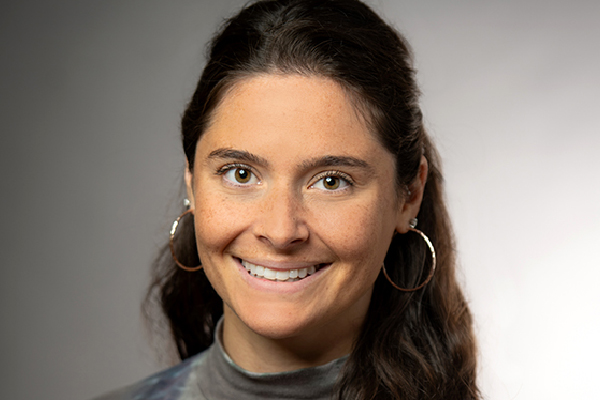
Shannon Streisel joined CJI in February 2022 with years of experience focused on data management, analysis, and interpretation while keying a sharp eye on policy impact. Shannon works primarily with criminal justice agency data for the Justice Reinvestment Initiative portfolio at CJI. Her research interests include substance use, desistance, and reentry. She’s committed to working towards a more humane criminal justice system that focuses on building up individuals and communities with needed resources to increase quality of life. Her research has been published in the Journal of Offender Rehabilitation, Substance Use & Misuse, Federal Probation, the Journal of Community Safety & Well Being, and the Journal of Ethnicity in Substance Abuse. Shannon holds a PhD and MA in Criminology from the University of Delaware and attended the College of New Jersey for her BS, which was also in Criminology.
Gretchen Bennett has over 20 years of experience working on justice system issues at the state and national levels. Gretchen’s work at CJI is focused on state-level policy and practice changes driven by evidence-based research and data. Gretchen previously was the Executive Director of the New England Innocence Project, using forensic science to free factually innocent people from incarceration and working on justice policy reforms in the six New England states. She also served as Chief Counsel to the Joint Committee on the Judiciary in the Massachusetts legislature, where she was a primary author of justice reform legislation signed into law in 2018. She has authored several publications, made guest appearances on radio, presented at numerous conferences, and held trainings for law enforcement, lawyers, judges, and legislators in the US and Canada on justice system issues. Gretchen’s passion is connecting stakeholders with myriad viewpoints and experiences and working with them to find consensus on justice system reforms using data and evidence-based examples and information. Gretchen has a Juris Doctorate from Boston University School of Law and a Bachelor’s degree from Harvard.
Ganesha Martin has served in several positions in Baltimore City government. Most recently she was the Director of the Mayor’s Office of Criminal Justice (MOCJ). She has overseen collaborative criminal justice efforts that included the Baltimore Police Department, Baltimore State’s Attorney’s Office, Governor’s Office of Crime Control and Prevention, Department of Justice Civil Rights Division, U.S. Attorney’s Office, the judiciary and several community groups.
Martin is a lawyer who led the federal court-ordered Consent Decree reform efforts at the Baltimore Police Department from 2015 – 2018. As Chief of the Department of Justice Compliance, Accountability & External Affairs Division, Martin collaborated with DOJ Civil Rights Division attorneys during a patterns or practice investigation that ultimately led to a Consent Decree. Martin played an integral role on a negotiation team that introduced structural reforms to the Baltimore Police Department in the areas of crisis intervention, relationships with youth, interactions with persons suffering from mental illness, use of force, de-escalation, body-worn cameras, mobile data computer technology, hiring & recruitment, community engagement and officer wellness & early intervention. A pioneer in public-private partnerships that have introduced organizational opportunities for inclusion and equity, Martin is an ambassador who seeks nontraditional relationships to better serve all public safety stakeholders. She has led police reform efforts around the country and currently leads the impact campaign for the documentary Charm City, which uses film to create a space for community and police to discuss how to co-create public safety and reform.
In her current consulting practice, Martin focuses on uniting communities of color and the police who swear to serve and protect them. Her unique ability to connect with both the community and police before guiding them towards common ground is the hallmark to her success. In addition to Baltimore, she has consulted on consent decree compliance and police reform matters for police departments across the country. An expert on public safety, best practices for building relationships between community and police, she regularly advises nonprofit organizations, real estate developers, tech startups, private corporations, community groups and local governments.
A highly sought-after expert on police reform, Martin regularly speaks on DOJ Consent Decrees, police reform and accountability, and public safety. She’s a member of the Council on Criminal Justice, an invite-only, nonpartisan organization and think tank for leaders in the criminal justice field. She was recently elected to the Board of Directors for the National Criminal Justice Association. In 2019 she was one of 40 community policing experts invited to Nairobi, Kenya to share community policing strategies during the Convening on Civilian Police Reform by Open Societies Foundation. She was also awarded their Securing Open Societies Fellowship in 2019. Martin’s expert commentary has been featured in The New York Times, The Baltimore Sun, USA Today and the Washington Post among others.
Never one to be intimidated by what others see as impossible, Martin is using her talent to move the needle on some of society’s most challenging social problems. Her ability to translate both sides of an issue, quickly overcome distrust, and move things forward helps her get things done. Her commitment to use communication as a bridge to unite opposing groups, diffuse conflict, and foster real human connection make her an invaluable asset to anyone seeking to bridge an insurmountable divide. But her fundamental belief in the universal human potential for rehabilitation and understanding pushes her towards her biggest goal to create practical pathways to progress for police and community.
A co-founder of Educated Exposure Foundation, a board member of Year Up Baltimore, Teach for American, Outward Bound, Baltimore Community Mediation Center, and Overcoming Poverty Together, Martin’s philanthropic endeavors reflect her commitment to advance social justice issues that directly impact the quality of life for historically underserved communities. A Leadership Maryland and Greater Baltimore Committee’s LEADERship program alumnus, Martin has been recognized in recent years by The Baltimore Sun in its Top 25 Women to Watch, The Daily Record in its Top 100 Women and the International Association of Chiefs of Police (IACP) in its Top 40 Under 40 list.
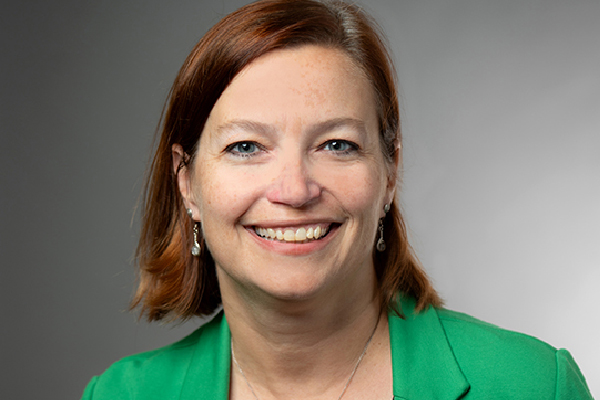
Jessie Halladay began her career as a journalist primarily covering public safety issues before transitioning to policy work with prosecutors, police, and state government. Jessie’s work at CJI focuses on Justice Reinvestment and assessing disparities that exist within corrections systems. Jessie has extensive experience in crisis communications, policy development, legislative lobbying, and meaningful community engagement practices. Jessie is committed to using data and evidence-based practices to engage with communities toward making needed structural changes in our justice system. Jessie has a BA in History from the University of Michigan and a Master’s in Journalism from Northwestern University’s Medill School of Journalism.
Dr. Theron Bowman began his public service career in 1983 as an officer with the Arlington (TX) Police Department, and served in numerous positions before being appointed police chief in 1999. He later served for five years as a Deputy City Manager and Director of Public Safety before retiring in 2017. He is a police practices expert and President/CEO of The Bowman Group.
He led the North Texas regional public safety efforts for the 2010 NBA All Star game, MLB World Series games and NFL Super Bowl XLV. He created and led an internal workgroup that explored and later created a statistically significant predictive geospatial algorithm that accurately explained more than seventy percent of residential burglaries in a city of 370,000 people. He has led, managed and participated in police practices investigations and audits in multiple locations, including Albuquerque, NM, Baltimore, MD, Battle Creek, MI, Chicago, IL, Cleveland, OH, Los Angeles County, CA, Maricopa County, AZ, Newark, NJ, New Orleans, LA and Seattle, WA. He is a federal court-appointed consent decree deputy monitor in Baltimore, MD, and a multidisciplinary law enforcement expert on the New Orleans, LA and Memphis, TN monitoring teams.
Dr. Theron Bowman’s recognitions include the African American Peace Officer Association of Arlington “Officer of the Year,” Proclamation of Achievement from the Texas State Senate and the U.S. House of Representatives, a University of Texas at Arlington “University Scholar and Distinguished Alumni.” Theron Bowman assumed the duties of Police Chief in Arlington, Texas in 1999, and in 2003, was presented by the John Ben Shepperd Public Leadership Institute with the Outstanding Local Leader Award. In 2004, the Police Executive Research Forum (PERF) presented him with the Gary P. Hayes Award. In 2005, Chief Bowman was elected to chair the Texas Intelligence Council, and he began his service as a CALEA Commissioner in 2006. He served as an IACP Executive Committee member for more than ten years. Dr. Bowman was inducted into the Evidence-Based Policing Hall of Fame located at George Mason University in 2012. Today he serves as a Director for the Evident Change, formerly the National Commission on Crime and Delinquency. He is a founding member of the Police Foundation in Arlington, Texas.
Dr. Bowman received three degrees from the University of Texas at Arlington, a bachelor’s in biology, a master’s in public administration and a doctorate in urban and public administration.
Michael Wilson is an economist who works around the country as a cost-benefit and criminal justice research consultant. He has worked in more than 40 jurisdictions to help improve outcomes and build local capacity. In this role he has worked closely with counties to develop cutting-edge criminal justice tools; including cost-benefit models, jail and policy projections tools, recidivism tools, and a pretrial specific cost-benefit model. He worked with The Pew Charitable Trusts and the California State Association of Counties to provide technical assistance in implementing cost-benefit models to multiple states and counties. He also has performed cost-analysis and policy modeling of state and county justice reinvestment strategies and has created jail and prison projections models as part of the Justice Reinvestment Initiative. He has taught cost-benefit seminars and webinars through the Vera Institute of Justice, The Pew Charitable Trusts, the Crime and Justice Institute, Justice System Partners and the Justice Research and Statistics Association.
Hannah Cortina joined the Crime and Justice Institute in July 2021. Prior to CJI, Hannah began her career working in the field of corrections as a state employee before moving into the research field where she studied experiences of incarceration for three years. She works with CJI’s corrections and reentry teams to support our work in reducing the impact of incarceration on people’s lives through practitioner training and evaluation of programming. Hannah is dedicated to changing the criminal justice system by transforming empirical data into understandable and relatable language that subsequently leads to better policy and practice. She holds her Ph.D. in Criminology from the University of Delaware, a Master of Science in Forensic Psychology from the University of New Haven, and a Bachelor of Science in Criminal Justice with a concentration in Corrections from the University of New Haven.

Mei Yang joined CJI in July 2021. She is part of CJI’s pretrial team and works on several projects analyzing front-end data to improve pretrial systems. Before coming to CJI, Mei was a graduate research assistant at the University of Maryland and focused on research involving marginalized, at-risk youth. She has a strong background in quantitative analysis and is passionate about exploring data-driven solutions to pressing issues in the criminal justice system. She holds a MA and Ph.D. in Criminology and Criminal Justice from the University of Maryland.
Jonathan Ogletree has over 30 years’ experience working in the adult criminal justice system at the state and federal level. He has expertise in areas of re-entry services, cognitive behavioral interventions, paroling authority’s decision-making process and program fidelity. Jonathan has served on advisory boards for national criminal justice reform and state sentencing commission. He has numerous training projects in collaborations with federal and state agencies. He is passionate about improving the criminal justice system within the scope of evidence-based practices enhancing public safety for communities. He is the Vice President for Association of Paroling Authorities International (APAI). Jonathan holds a Bachelor of Science degree in Organizational Management from Friends University and Master of Arts degree in Management from Webster University.
Larry Reid is President of Correctional Consulting Services and has been a partner of CJI since 2013 on our prison restrictive housing state technical assistance projects and national training programs. Larry specializes in facility operational plans, contemporary programs for people in high risk and segregated populations, staffing analysis, policy and procedure development, organizational management, and correctional security programs. Larry conducts assessments and evaluations of restrictive housing programs across the nation. Larry has co-authored for the National Institute of Corrections (NIC) two editions of the Security Auditing Program Manual, participated in the updating of the Security Audit Instrument, and has contributed to a number of publications. Larry has trained nearly 40 jurisdictions across the US and was a member of the advisory board for a BJA-funded longitudinal research project titled, Evaluation of the Psychological Effects of Administrative Segregation, from 2006 to 2010. This was the first research study to compare the psychological effects on people incarcerated in an administrative segregation setting to people in the general population within prison.
Antonio has over thirty (30) years of Corrections experience and retired in 2019 as Director of Adult Residential Services for the Johnson County Department of Corrections (JOCODOC) in Johnson County Kansas.
During his tenure with JOCODOC he served as a Correctional Officer, Intensive Supervision Officer, Resource Developer, Deputy Director of Programs for Residential Services, Juvenile Case Manager II, Interim Director for Adult Field Services, Interim Director of Juvenile Detention Services, and as mentioned, completed his career as the Director of the Adult Residential Center, an 398 bed facility housing male and female felony offenders in a community based residential setting.
Antonio has worked as a trainer and consultant for approximately 10 years providing training in Prison Rape Elimination Act (PREA) implementation, leadership development, as well as serving on assessment teams providing guidance and coaching for prison and field service personnel in various states across the country.
He holds an Associate Degree in Law Enforcement from Kansas City Kansas Community College, and a Bachelor of Arts Degree in Administration of Criminal Justice. He is a former member of the American Corrections Association (ACA) and the American Probation and Parole Association (APPA).

Jenn Plourde joined CJI in October of 2020 and brought with her expertise in criminal justice policy work. She serves as a team lead for implementation work through the Justice Reinvestment Initiative (JRI) at CJI. She’s also worked on efforts that address the behavioral health needs of individuals with justice system involvement. Jenn is passionate and motivated by improved outcomes for justice-involved individuals and the systems and reforms that help make those positive outcomes a reality. She holds a Bachelor of Arts dual degree in Sociology and Justice Studies from the University of New Hampshire, and a Master of Science degree in Crime and Justice Studies from Suffolk University.
Larry Reid is President of Correctional Consulting Services and has been a partner of CJI since 2013 on our prison restrictive housing state technical assistance projects and national training programs. Larry specializes in facility operational plans, contemporary programs for people in high risk and segregated populations, staffing analysis, policy and procedure development, organizational management, and correctional security programs. Larry conducts assessments and evaluations of restrictive housing programs across the nation. Larry has co-authored for the National Institute of Corrections (NIC) two editions of the Security Auditing Program Manual, participated in the updating of the Security Audit Instrument, and has contributed to a number of publications. Larry has trained nearly 40 jurisdictions across the US and was a member of the advisory board for a BJA-funded longitudinal research project titled, Evaluation of the Psychological Effects of Administrative Segregation, from 2006 to 2010. This was the first research study to compare the psychological effects on people incarcerated in an administrative segregation setting to people in the general population within prison.
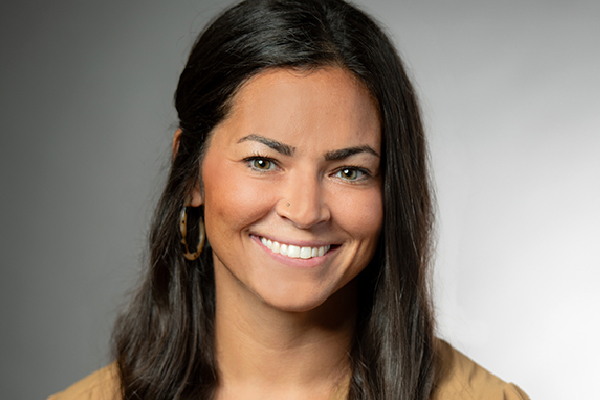
Cortnee Eakins has over 10 years of experience working in the juvenile and adult justice systems at the county level. At CJI, Cortnee supports various teams through conducting policy research and analysis. Cortnee is passionate about improving outcomes for those directly impacted by the criminal justice system through policy reform and evidence based practices. Cortnee holds a B.S. in Criminal Justice from Missouri Southern State University.
Karina Zeferino joined CJI in September 2020. As an intern, she primarily maintains the Coming Home Directory, a directory of reentry services available to people returning from incarceration to Greater Boston. Karina is committed to reforming our criminal justice system and aspires to do so by developing and analyzing evidence-based policies that will help mitigate the harmful effects of mass incarceration. Karina holds a BA in Psychology as well as a secondary major in Legal Studies, a minor in Sociology and a certificate in Criminology from the University of Massachusetts Amherst. Karina graduated with a Master in Public Policy in 2022 at Simmons University
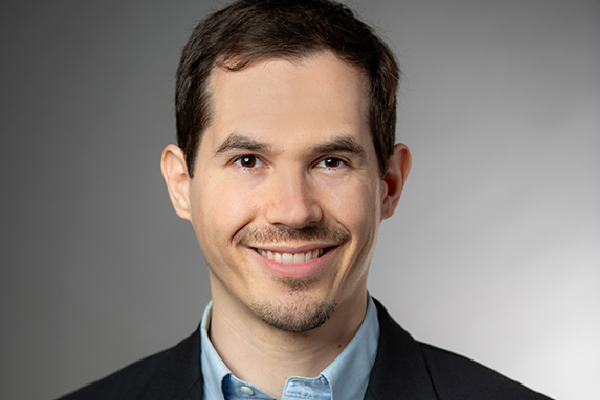
Andy Tisdel joined CJI in April 2020. He primarily supports CJI’s pretrial justice work, providing technical assistance and contributing to the assessment of pretrial systems in various states, as well as contributing to CJI’s implementation team. Andy is committed to analyzing and communicating effective, evidence-based policies that help states reform their justice systems and improve their outcomes. He holds a BA in English from the College of Wooster, as well as a Master of Public Policy and a Social Impact MBA from Brandeis University, where he focused on criminal justice policy analysis.
Molly Buchanan has nearly 20 years of experience in varied academic and non-academic roles that include direct supervision and advocacy for system-involved youths, crime victim advocacy, and criminology professor. Her early experiences led Molly to seek out the advanced theoretical and quantitative training she uses in her ongoing quantitative data analyst and collaborative researcher roles. She broadly categorizes her research as an epidemiological, life course view of consequences of criminal justice system involvement, all with an aim to inform and promote an evidence base. Her work has been published in peer-reviewed journals, including Criminology; Criminology & Public Policy; and American Journal of Criminal Justice. At CJI, Molly supports the advancement of adult and juvenile justice reform initiatives and data-driven policies. She graduated from the University of Florida with a PhD in Criminology, Law, and Society.
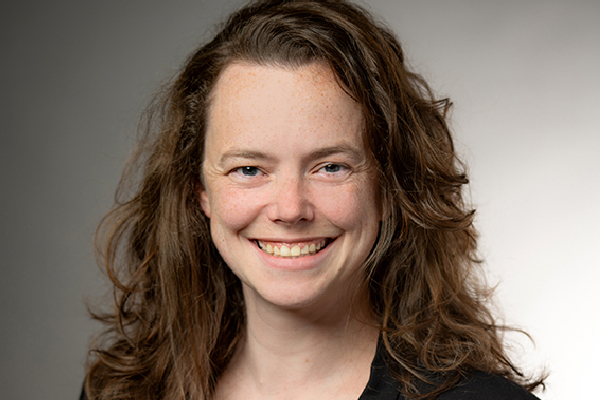
Carrie has over a decade of public management and research design experience. At CJI, Carrie serves as the data lead for the Justice Reinvestment Initiative and supports several projects in their data analysis and policy initiatives. Prior to joining CJI, Carrie was an analyst for state probation services, where she was responsible for creating statewide projects and providing extensive data analysis and technical support to local stakeholders. Her public management research has been published in such peer-reviewed journals as Nonprofit and Voluntary Sector Quarterly and Public Administration, and she has taught Evidence-Based Decision Making for graduate students. Carrie is driven by a commitment to helping local communities through the adoption of evidence-informed, data-driven decision making techniques. Carrie received her BA in Political Science from the University of North Carolina at Asheville and her PhD in Public Affairs from the University of Colorado Denver.
Noah Atchison joined CJI in July 2019. He supports CJI’s pretrial work where he analyzes pretrial outcomes and performs risk assessment validation. He also assists states implementing reforms through the Justice Reinvestment Initiative with performance measure development more broadly. Before joining CJI, Noah worked at the Brennan Center for Justice on a long-term study of the fiscal impact of criminal fines and fees. As part of this role he managed data collection and analysis, as well as organizing court watching, survey development, and stakeholder outreach. He is committed to developing comprehensive and ethical means of tracking outcomes in the justice system, and to improving data transparency as part of broader criminal justice reform efforts. Noah holds a BA in Economics from Reed College.

Barbara Pierce is the director of justice initiatives at the Crime and Justice Institute (CJI). She has more than 25 years of experience in adult and youth justice in the public and private sectors. She oversees CJI’s projects related to implementation of state and local policy initiatives through the Justice Reinvestment Initiative (JRI). She also directs CJI’s two national-level restrictive housing projects which include the Bureau of Justice Assistance (BJA) Restrictive Housing Reform Implementation Assistance Program supporting state correctional agencies implement reforms and measure impact. The National Institute of Corrections Restrictive Housing Training and Technical Assistance program also falls under Barbara’s purview. Since 2021, Barbara has coordinated the implementation and dissemination of an innovative crisis response model specifically designed for rural law enforcement. Barbara also serves as an advisor to the Veterans Justice Commission through the Council on Criminal Justice. Barbara received her Master of Public Policy and Management from the University of Southern Maine and a Bachelor of Sociology from Providence College.

Len brings over 25 years of experience in criminal and juvenile justice policy issues to strategically lead CJI’s policy and legislative work. Over the course of 20 years at CJI, Len has directed numerous criminal justice projects in 17 states across the country as part of the Justice Reinvestment Initiative (JRI) of the Bureau of Justice Assistance. Len collaborated with leaders throughout the field to develop the JRI approach, which assists states in developing data-driven, collaborative strategies that improve public safety, reduce recidivism, and ensure more effective and efficient justice system resources. Len’s expertise supports CJI’s policy teams and state policymakers through complex legislative processes, resulting in successful bipartisan outcomes.

Colby Dawley has over a decade of experience supporting justice reform efforts in states across the country. Her work has focused on helping states use a data-driven approach to address the unique challenges facing their system. Colby has led and managed many projects at CJI, including CJI’s long standing Justice Reinvestment Initiative project. In her current role, Colby serves as a member of CJI’s leadership team and oversees CJI’s adult policy work. Before joining CJI in 2010, Colby worked for several criminal defense attorneys, gaining a thorough understanding of the challenges impacting the justice system. Colby is committed to assisting states in the development and implementation of data-driven reforms that align with the research on what works to reduce recidivism, increase public safety, and improve outcomes for justice-involved individuals and their families. Colby holds a Bachelor of Arts in Political Science from the University of New Hampshire and a Master of Science in Crime and Justice Studies from Suffolk University.

Martha Gilford has over 20 years of experience in the public sector with the Commonwealth of Massachusetts, first as a social worker in child protection and later in the Finance and Business Administration arena. For the last 7 years she has focused her work in the fiscal departments of several mission driven nonprofit agencies and most recently managed the state and federal contracts for a Domestic Violence agency. She is committed to using her knowledge of federal contracts and budgeting to support the work of the Institute. Martha has a Bachelor of Arts in Social Services and Minors in Criminal Justice and Psychology from the University of New Hampshire.

Julie Finn has been with CJI for more than 10 years and works on projects that support efforts to improve juvenile and criminal justice programs, policies, and services. Julie helps agencies and stakeholders use data to inform decision making, conducts action research, and provides information and project management. For seven years Julie provided technical assistance to the Massachusetts Department of Youth Services on implementation of the Juvenile Detention Alternatives Initiative (JDAI). During her work with DYS, she was awarded the Massachusetts JDAI “Unsung Hero” award for her efforts to increase the capacity of JDAI partners to make data-driven decisions for youth in the juvenile justice system. Julie is committed to working with project partners to improve systems and processes and to understand the challenges of implementing research-based practices in the field. Julie graduated from Colby College with a Bachelor of Arts in Government.

Leila Khelfaoui has dedicated many years of employment to working with at-risk youth and children with behavioral challenges. Leila works to support the implementation of comprehensive juvenile justice reform legislation as part of the Office of Juvenile Justice and Delinquency Prevention’s Smart on Juvenile Justice Initiative. Leila’s educational background encompasses a variety of criminal and juvenile justice interests such as justice-involved youth, community-based interventions and administrative segregation. Leila is motivated by juvenile justice reform that focuses on evidence-based practices and producing positive outcomes for the youth and families. Leila holds a Bachelor of Arts in Psychology from the University of Massachusetts and a Master of Science in Justice, Law and Criminology from American University.
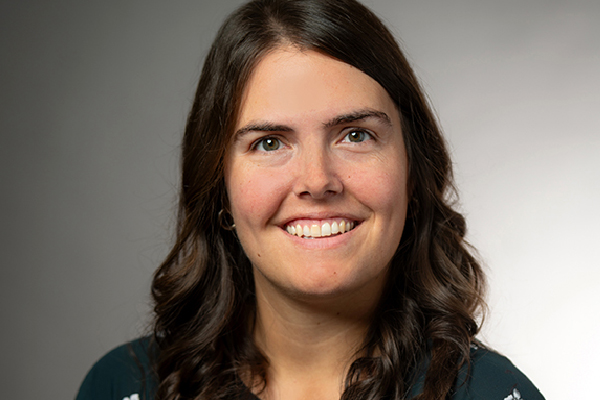
Abigail Strait joined CJI in August of 2015 and in that time has focused on policy implementation. Abby currently manages a team implementing policy changes made to the adult justice system through the Justice Reinvestment Initiative (JRI), including leading JRI implementation work across several sites. Abby is driven by the impact a focus on evidence-based practices and the inclusion of multiple voices can have on how policies are rolled out. Abby holds a Bachelor’s degree from Hamline University in Minnesota and a Master’s degree in Public Policy from Brandeis University in Massachusetts.
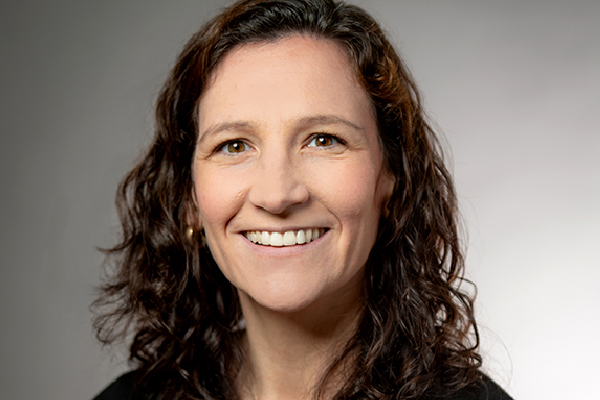
Maura has over a decade of experience in the field of criminal justice. She began her career as a public defender at the Defender Association of Philadelphia, and has subsequently worked on criminal justice reform in both the legislative branch as Counsel to the New York State Assembly, and in the executive branch as a Senior Policy Advisor at the New York City Department of Correction. In her current role, Maura manages projects under CJI’s adult policy portfolio that focus on using data and evidence-based research to reduce prison populations across the country. Maura has experience leading bipartisan, multi-stakeholder efforts to pass and secure meaningful reform. She holds a bachelor’s degree in History from the University of Michigan, and a juris doctorate from Tulane University Law School.

Valerie Meade brings nearly three decades of experience in the adult and youth justice field, with a robust background in both community and institutional settings. Her expertise encompasses cognitive-behavioral interventions, motivational interviewing, case management, model fidelity, staff development, and continuous quality improvement.
In her role as Deputy Director at CJI, Valerie oversees initiatives aimed at assisting jurisdictions with the sustainable implementation of evidence-based practices. She supports staff and stakeholders through culture change to foster improved outcomes. Valerie is dedicated to enhancing the quality of justice system programs and practices through collaborative efforts that lead to improved public safety.
Valerie holds a Bachelor of Arts in Psychology and Criminal Justice from Lindenwood University in St. Charles, Missouri.
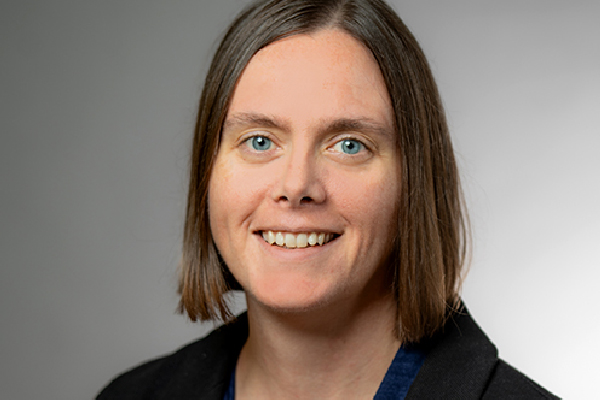
Katie Zafft has over 10 years of experience working on justice system policy evaluation and implementation of reform efforts at the local, state, and federal level. Katie primarily manages CJI’s policing and reentry-focused efforts to advance positive changes in support of fair and equitable practices that directly impact the safety of all communities. Prior to coming to CJI, Katie’s work for The Pew Charitable Trusts’ public safety performance project involved evaluating state criminal justice policy reforms to inform the national conversation about sentencing, corrections, and enhancing public safety. Katie is committed to advancing better justice systems by developing strong foundations for data-driven decision-making because it leads to better policing and more equitable practices. She holds a PhD in Criminology and Criminal Justice from the University of Maryland, a Master’s Degree in Criminology from the University of Minnesota-Duluth, and a Bachelor of Arts in Psychology from St. Catherine’s University in St. Paul, Minnesota.

As a member of the policy team, Maja Vlajnic works primarily with adult corrections and community supervision. She brings to the role an extensive background in scholarly research on criminal justice, as well as interdisciplinary experience in analytical work. In addition to her academic experience, she has worked on projects exploring the impact of forensic evidence on sexual assault case progression, investigating commodity misinvoicing in international trade data, and collecting and analyzing qualitative data on hate crimes. Maja holds a PhD in Criminology and Justice Policy from Northeastern University, as well as a BA in English and a BA and MA in Criminology and Criminal Justice from the University of Maryland, College Park.
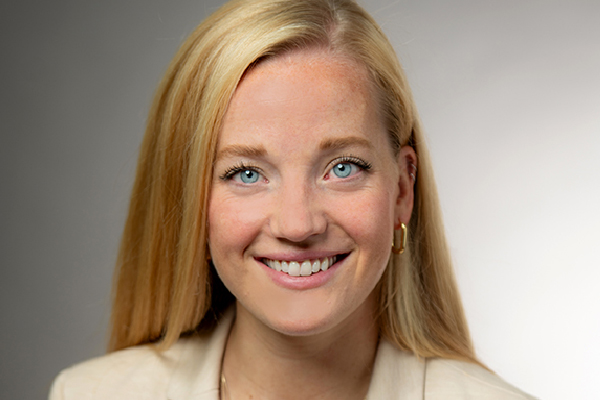
Molly Robustelli joined CJI in July of 2016 and has worked on many projects during her time with CJI. Her work is focused primarily on CJI’s Justice Reinvestment Initiative (JRI) project, assisting states reform their justice system to reduce recidivism and improve public safety. Molly leads the JRI Phase I team that reviews a state’s adult justice system and helps with drafting, passage, and implementation of reforms. Molly also leads a team on a project aiming to safely reduce revocations from community supervision and improve outcomes. Molly is committed to reforming the justice system through the use of data-driven approaches that reduce the reliance on incarceration, strengthen community supervision practices, and create safer and stronger communities. Molly holds a Bachelor of Arts degree from Georgetown University in Government and Spanish.

Gina Abbondandolo brings nearly a decade of experience in nonprofit operations. She currently serves as a Senior Operations Specialist at the Crime and Justice Institute (CJI), where she plays a key role in advancing organizational objectives by enhancing operational efficiency, streamlining communications, and ensuring compliance across various internal and external regulations. Before rejoining CJI in 2024, Gina held the Senior Associate for Global Operations position at the Clinton Health Access Initiative (CHAI). Prior to CHAI, Gina served in various administrative and operational roles at CJI. Gina graduated from UWW at UMass Amherst, earning a Bachelor of Arts in Criminal Justice Administration, and holds a Graduate Certificate in Nonprofit Human Service Management from Suffolk University.

Jess Hickman began her career working directly with families impacted by domestic violence, substance use, and mental health needs within court and nonprofit settings, and brings this experience to her current work. Jess leads CJI’s pretrial project portfolio, working with diverse local jurisdictions to implement data-driven change and improve outcomes for all involved in the legal system. She also acts as an advisor for CJI’s Justice Reinvestment Initiative work. Jess is committed to exploring innovative, promising practices to build on the existing pretrial research available. She is inspired by and seeks to support the efforts of jurisdictions to enact effective, evidence-based pretrial systems. Jess holds a BA in Criminal Justice from the University of Delaware and a Master of Public Administration from Georgia State University.

Jasmine began her career as a youth justice practitioner at the local and state level in the areas of court investigation, probation, and reentry. Over the years she has expanded her focus to youth justice reform and implementation. Jasmine manages CJI’s youth justice portfolio, with a focus on using data and evidence-based research to increase diversion opportunities, improve probationary practices, and reduce out-of-home placement populations through policy development, implementation, and sustainability. Jasmine was selected by the National Juvenile Justice Network as a Fellow for the 2020-2021 Youth Justice Leadership Institute to develop strategies to improve system practices and eliminate disparities among young people of color. Jasmine is passionate about finding effective ways to improve the lives of young people through direct care, system reform, and community impact. Jasmine holds a Bachelor of Science in Criminal Justice from Benedict College and a Master of Science in Criminal Justice from the University of Cincinnati.

Celeste began her career in the nonprofit sector supporting in-prison programming and reentry initiatives. Since joining CJI in 2019, she has assisted state and local governments in examining their legal systems and developing evidence-based, data-driven policies. Celeste currently leads system assessment and policy development work as part of the Justice Reinvestment Initiative in Caddo Parish, Louisiana. Previously, Celeste assisted with state efforts to reduce recidivism and improve public safety, many of which were codified in state law in 2023. Celeste is driven by policy work that is informed by individuals with lived experience in the legal system. Celeste holds a BA in Human Rights Studies and a minor in Legal Studies from Trinity College, Connecticut.
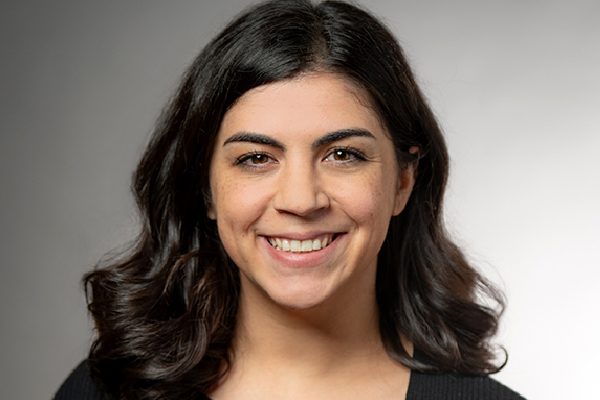
Amanda Coscia brings extensive experience in graphic design and justice-system communications to her role on the CJI communications team. Amanda began her career in criminal justice reform at a nonprofit organization where she conducted policy work at the federal and state levels. At CJI, Amanda designs and produces top-quality content that enhances project work and strengthens the brand. Amanda is driven by a dedication to advance the field through the creation of accessible materials that translate evidence-based research findings for target audiences. Amanda holds a BS in Communication Studies from Emerson College in Boston, MA.

